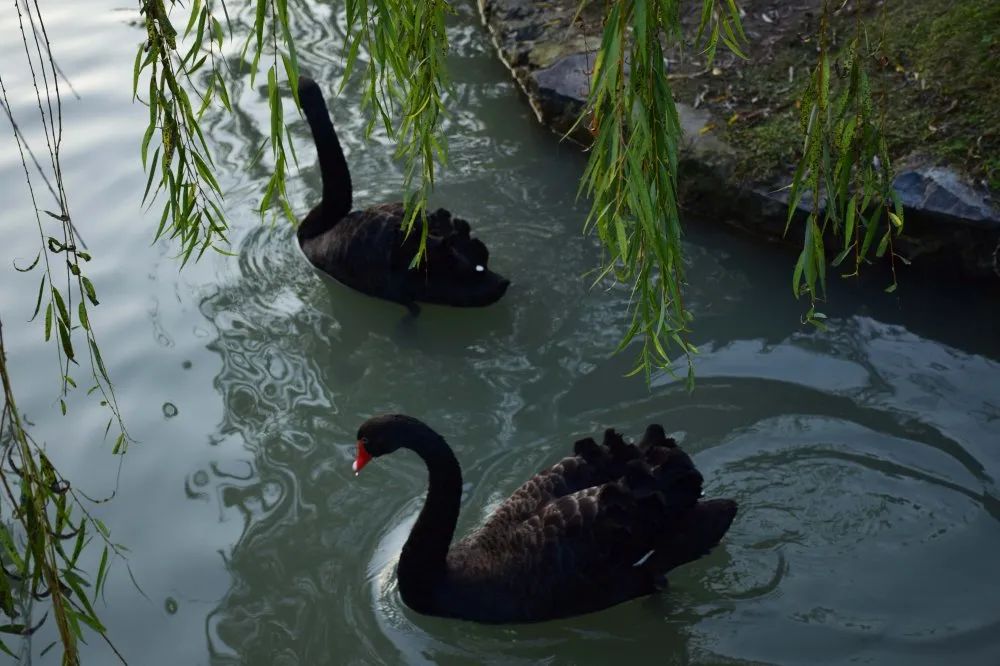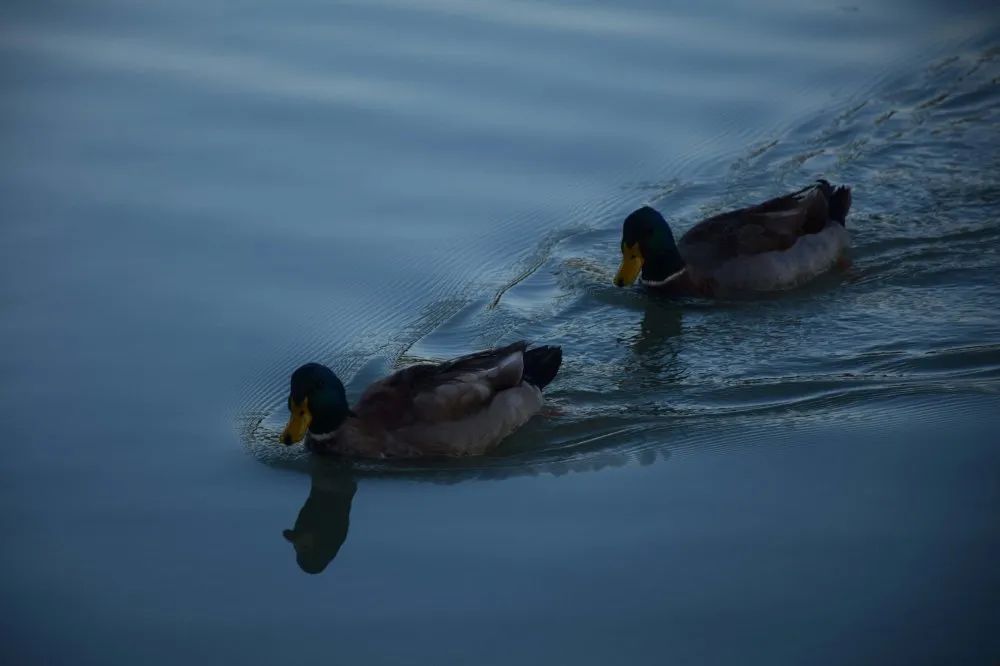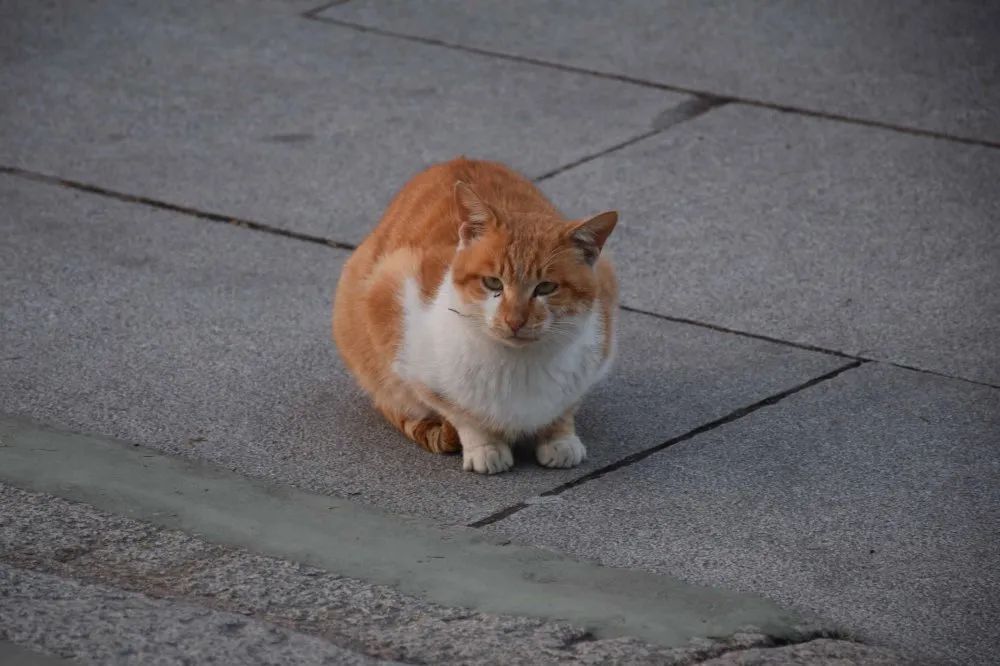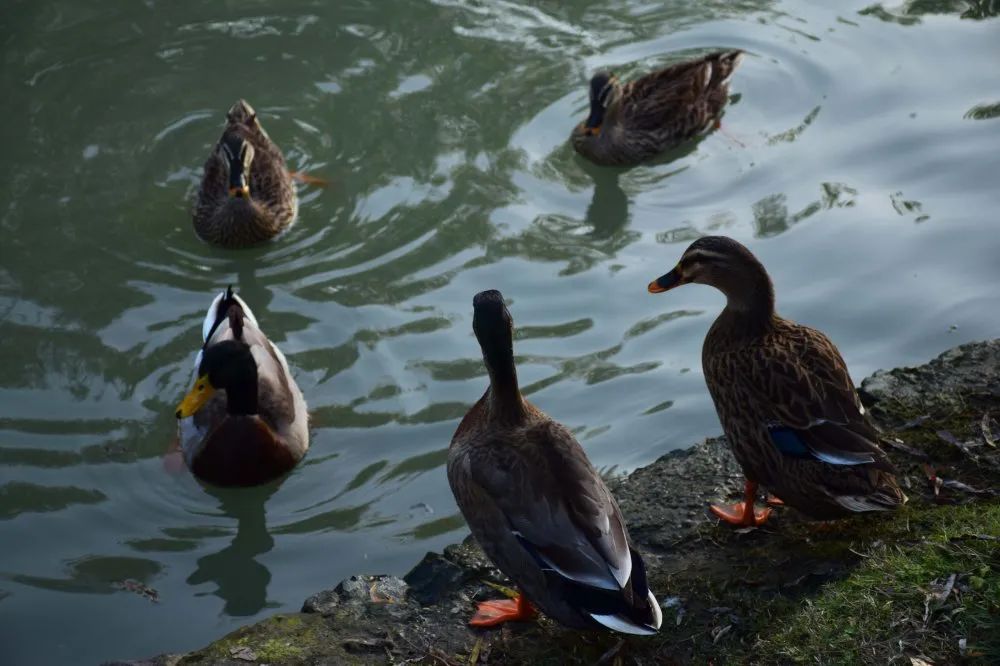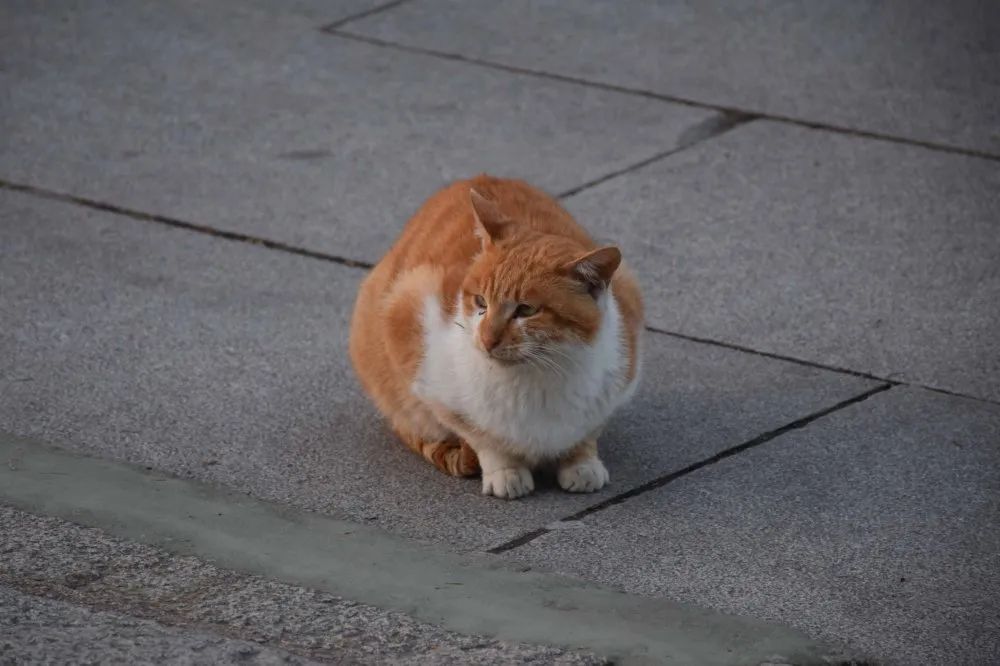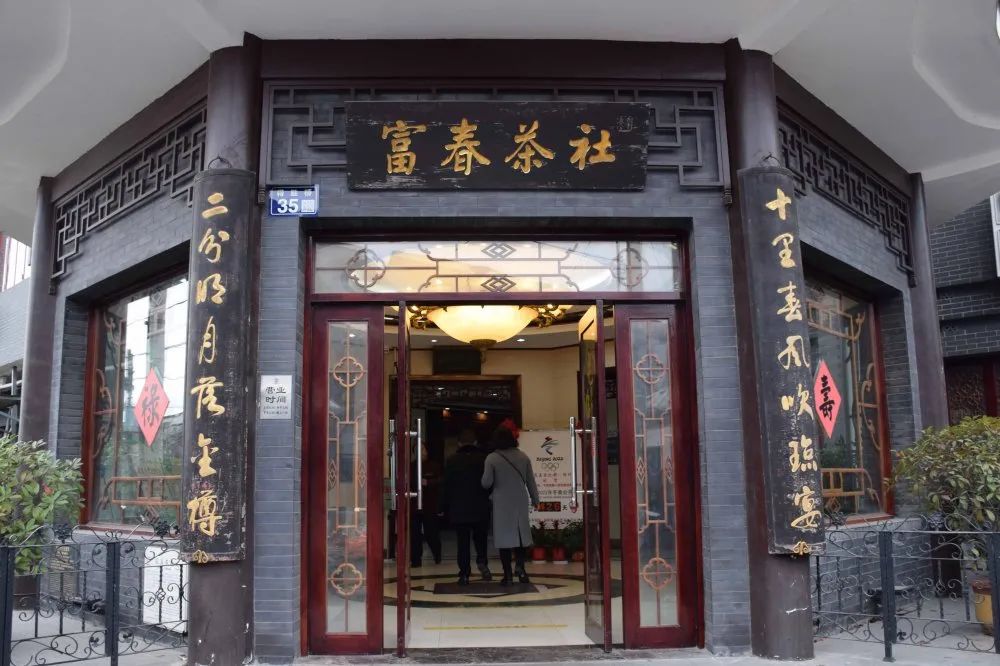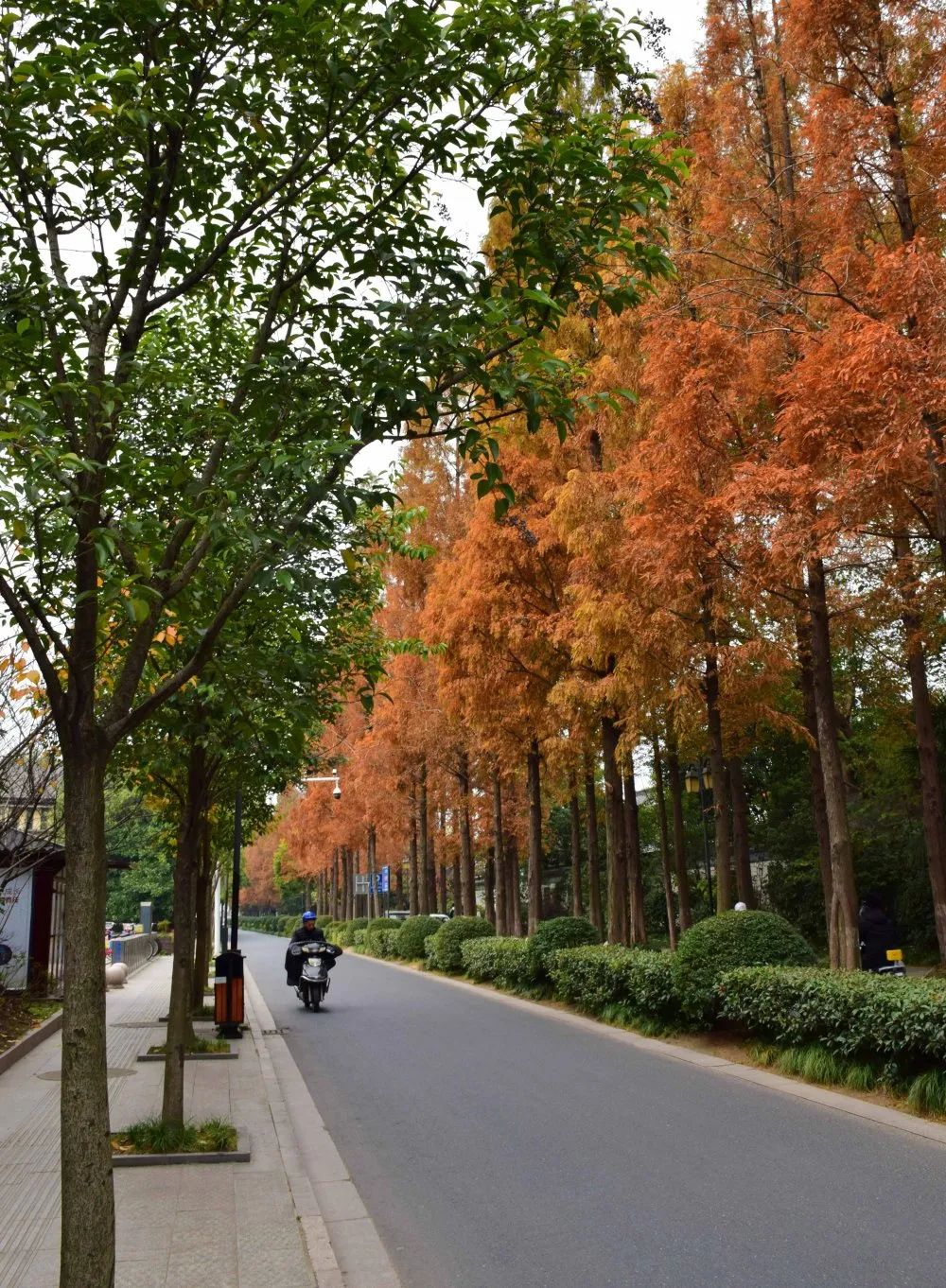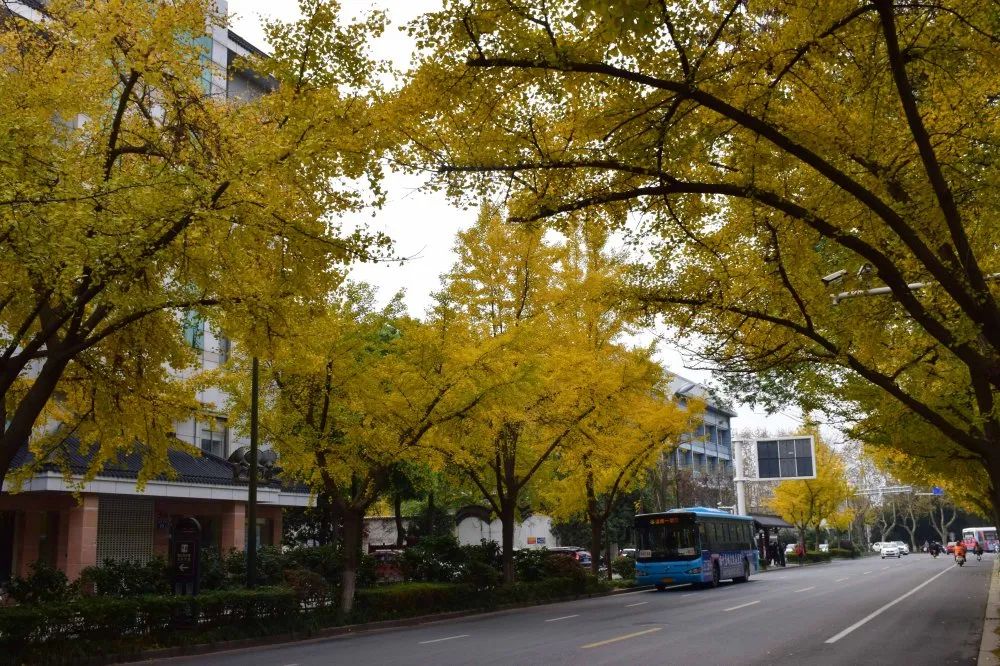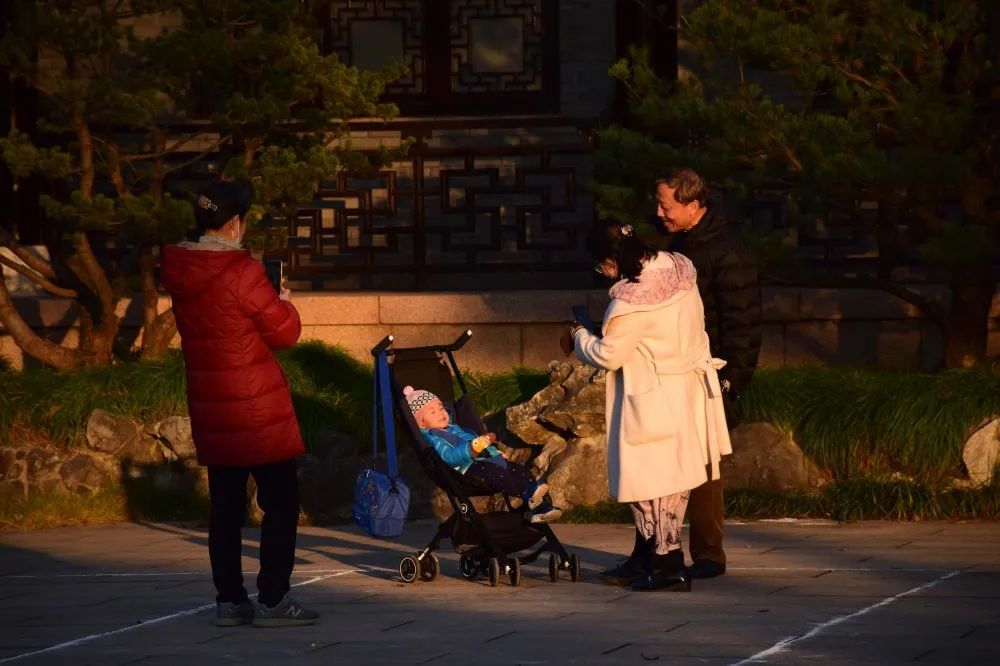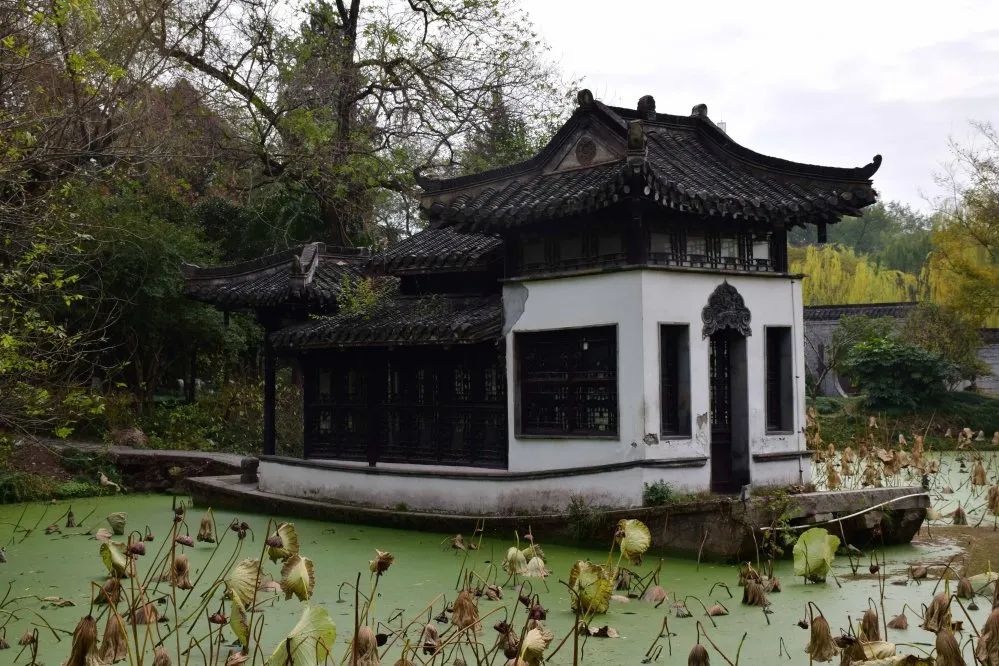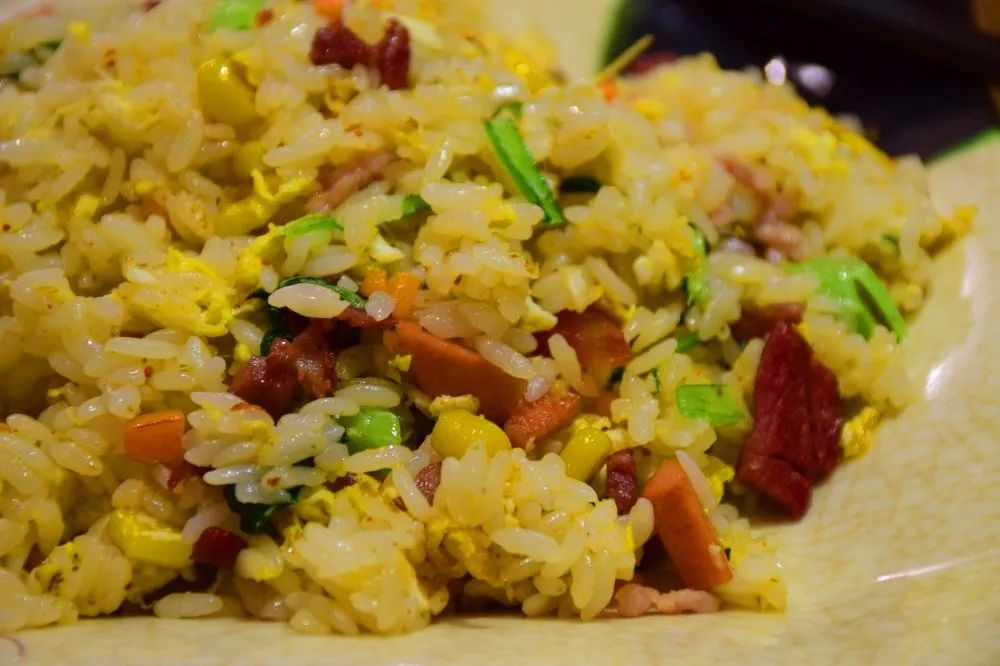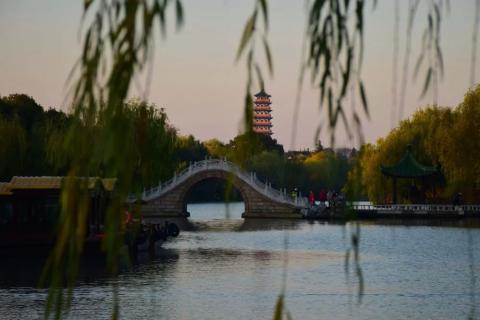
Yangzhou
twelfth lunar month of winter
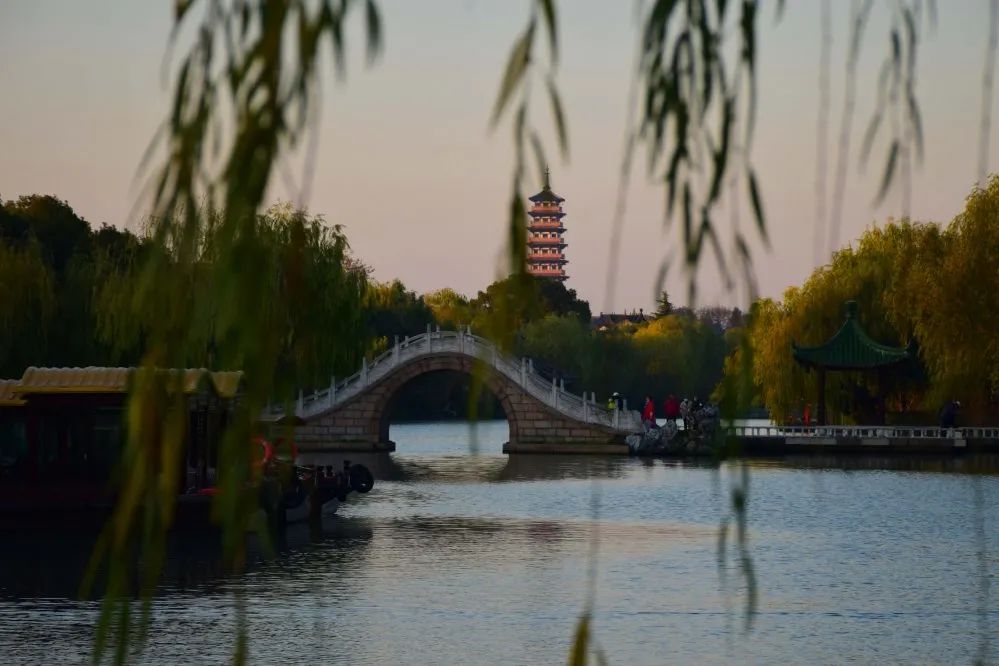
I still remember when I first came to Jiangsu, I told my friends about going to Yangzhou, but they were rejected. "Fireworks descend on Yangzhou in March", such romance should be reserved for the one you love. So since then, Yangzhou has become a sacred place that is inviolable except for "love" in my mind.
But I never expected that by some strange combination of circumstances, my first trip to Yangzhou would be in the twelfth lunar month of winter, when I went alone to "rush for the exam."

Fireworks in Yangzhou in March
The old friend left the Yellow Crane Tower in the west, and the fireworks descended from Yangzhou in March.
The shadow of the lone sail in the distance is gone in the blue sky, and only the Yangtze River can be seen flowing in the sky.
shouxi Lake
The moon shrieked once it was divided into two parts,
Half of it belongs to Yangzhou Twenty-four Bridge.
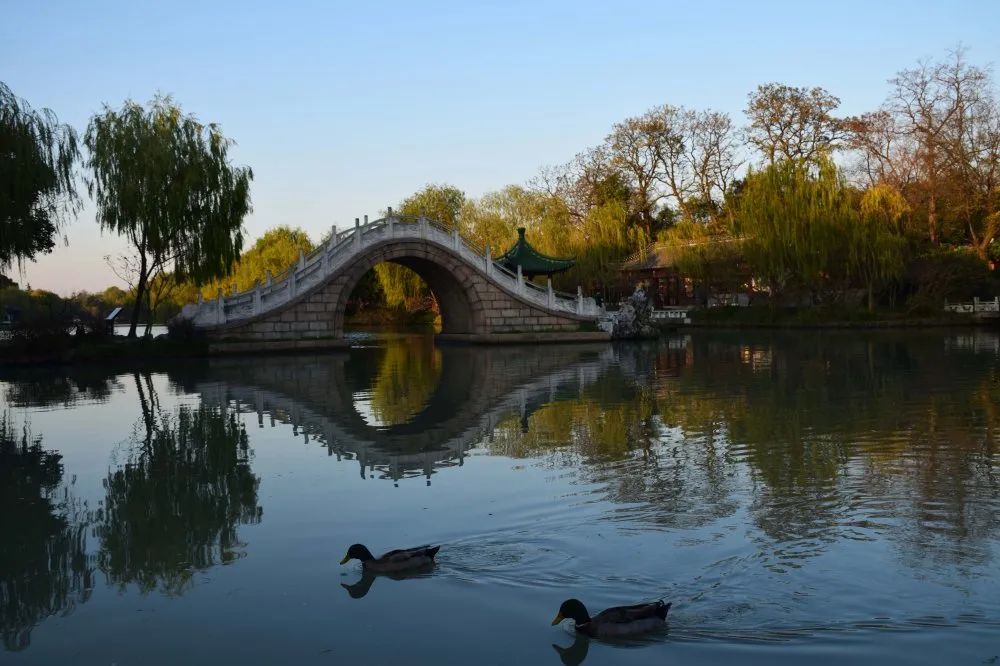
Speaking of Yangzhou, the most famous one is Slender West Lake.
Slender West Lake is a wide river outside Yangzhou City, formerly known as Baoyang Lake. The name of Slender West Lake comes from a poem written by Wang Hang, a poet who lived in Yangzhou during the Qianlong period, lamenting the lavish spending of money by wealthy businessmen: "The weeping willows are constantly picking up the remaining weeds, and the wild goose-toothed red bridge is like a painting; it is also a pot of gold, so it should be called Slender West Lake." "The characteristic of Slender West Lake is that the lake is long and winding. "More than ten gardens and pavilions are integrated into one, connected to the mountain, and the momentum is consistent."
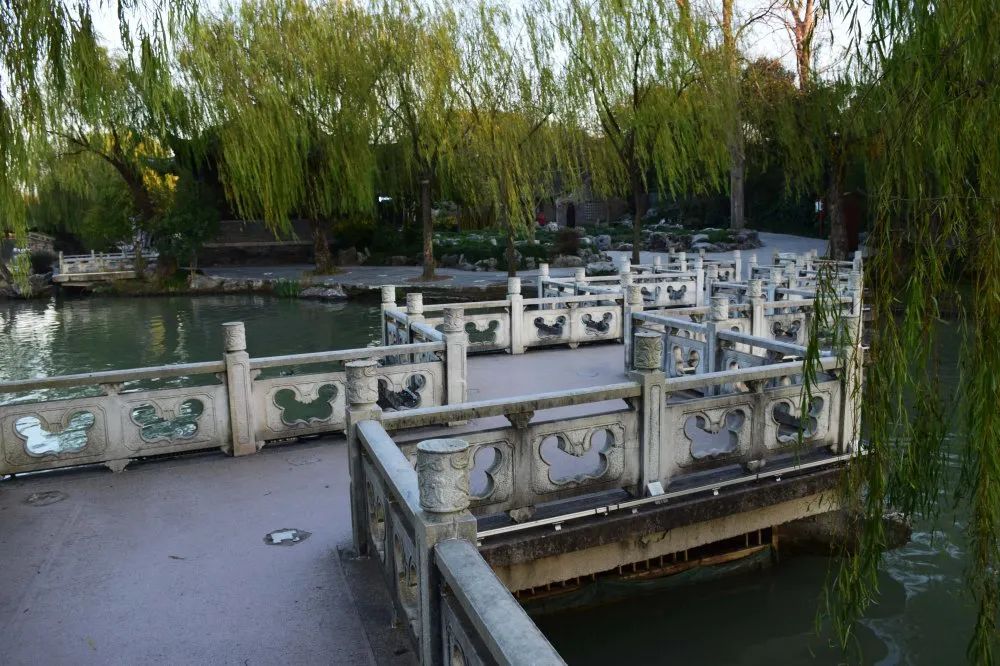
It is said that the scenery of Slender West Lake is the best in spring. A few steps away, a willow tree appears, as soft and moving as green mist. Accompanied by charming flowers and trees such as camellia, pomegranate, rhododendron, and green peach, it feels even more relaxed and graceful, graceful and graceful, and all kinds of poetry and painting are reflected in it.
But this time in the coldest month of winter, it was still a desolate scene. However, it happened to be sunset, and the golden light shone on the lake. In addition, there were few people in the off-season, so most of the tourists were locals. An old couple walking together, by the lakeside under the sunset, is a warm and romantic scene.
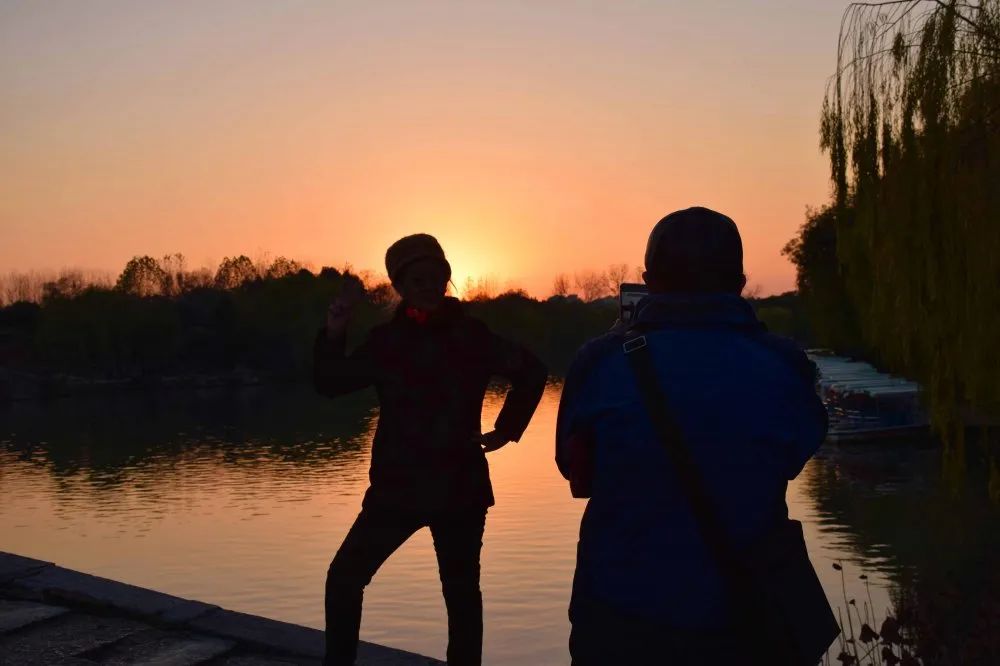

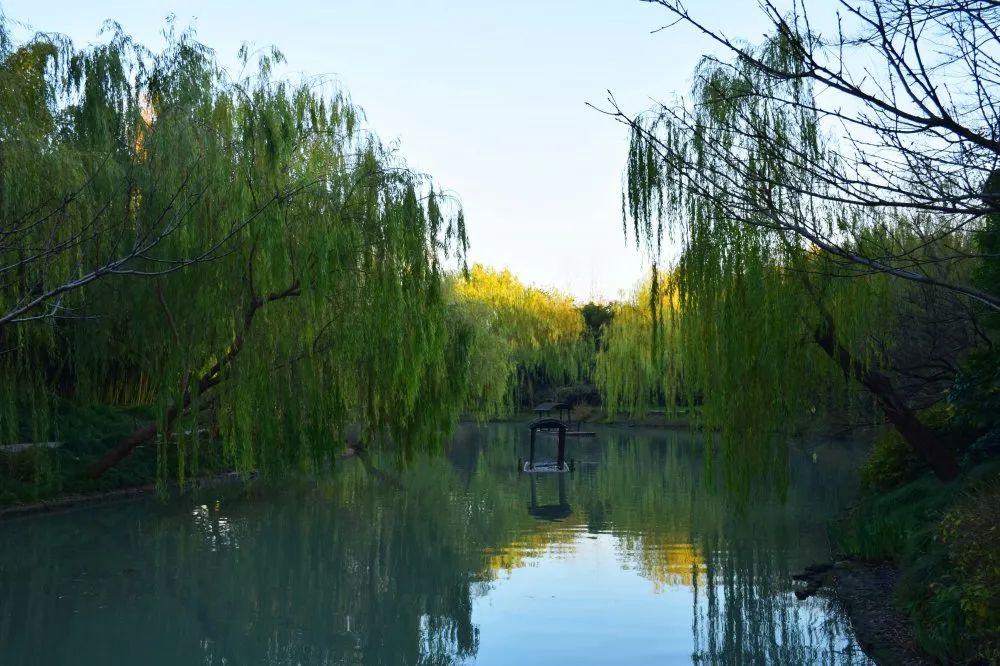
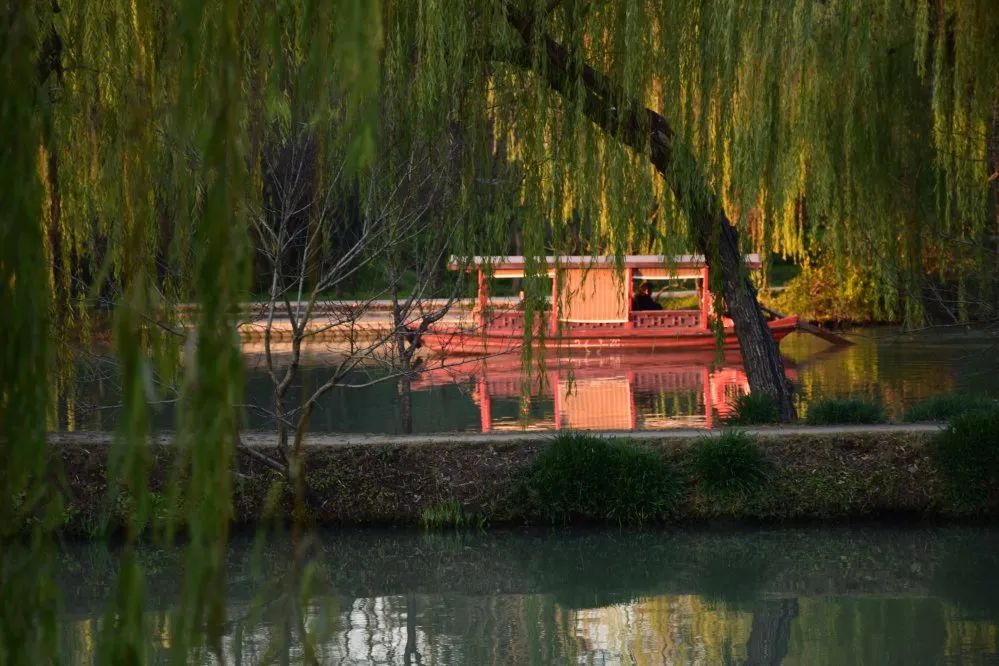
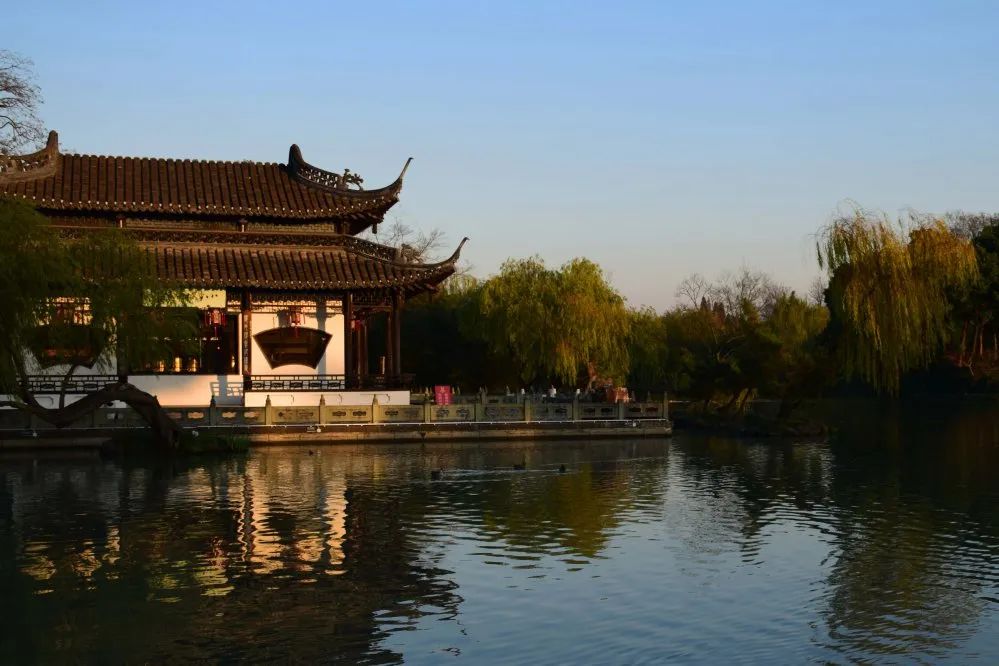
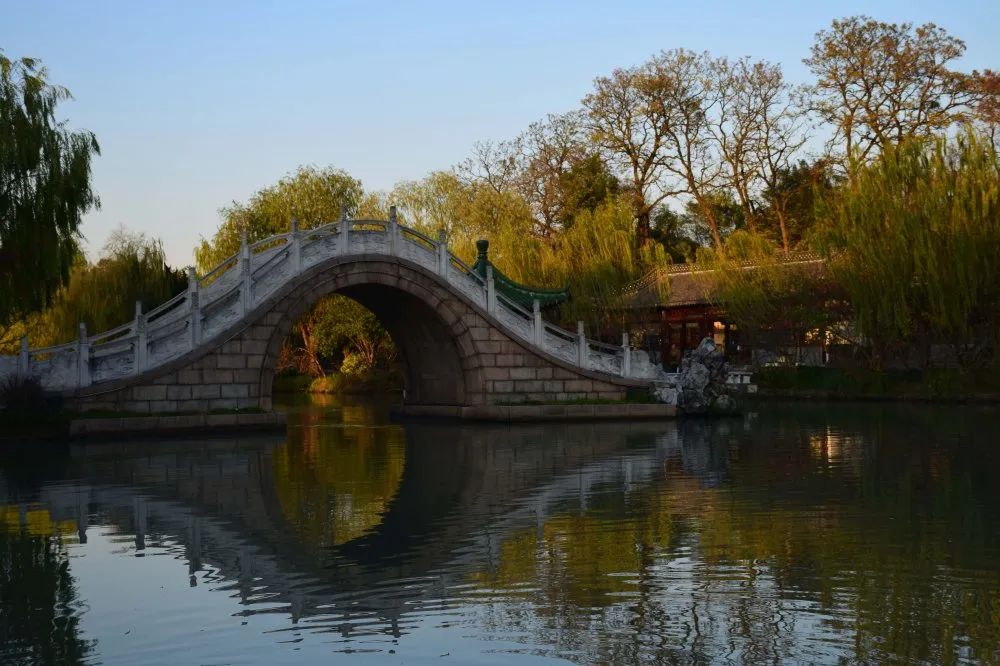
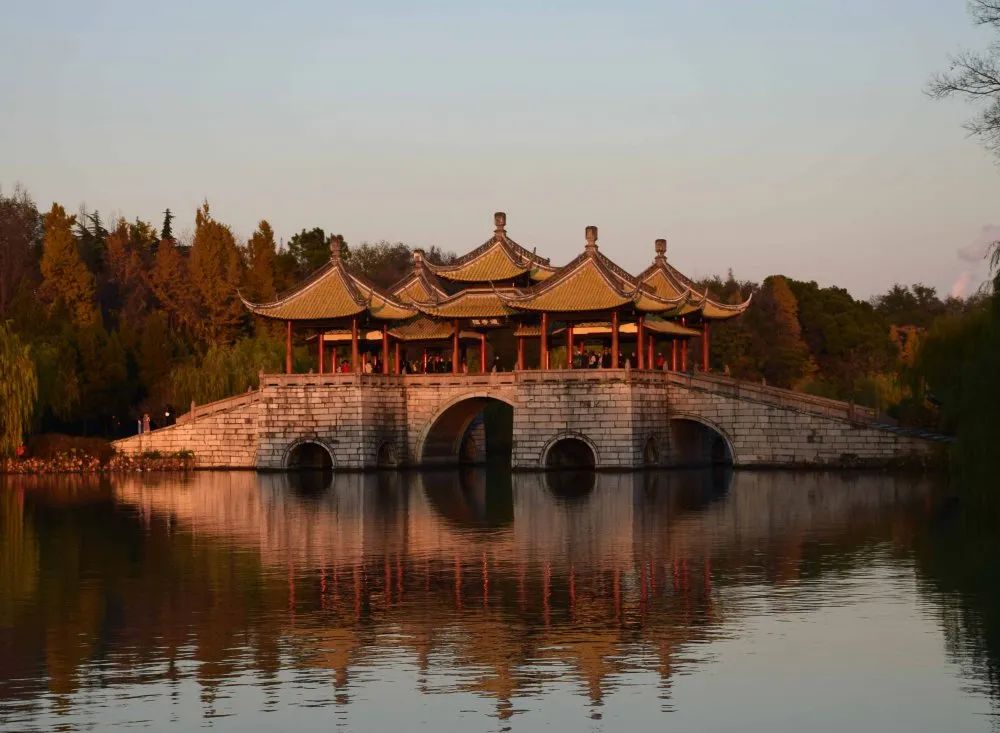
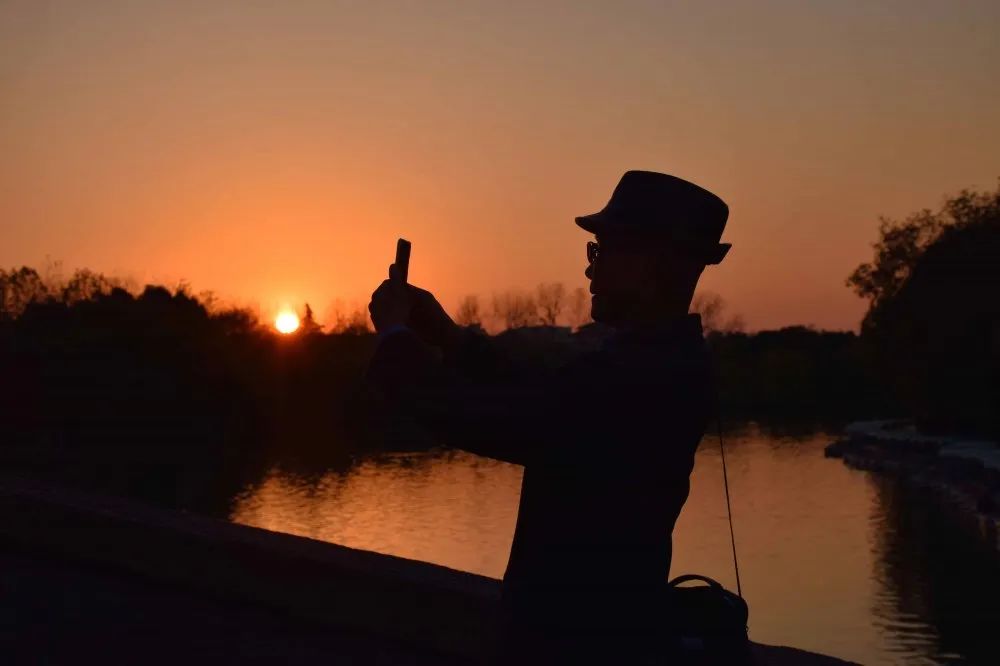
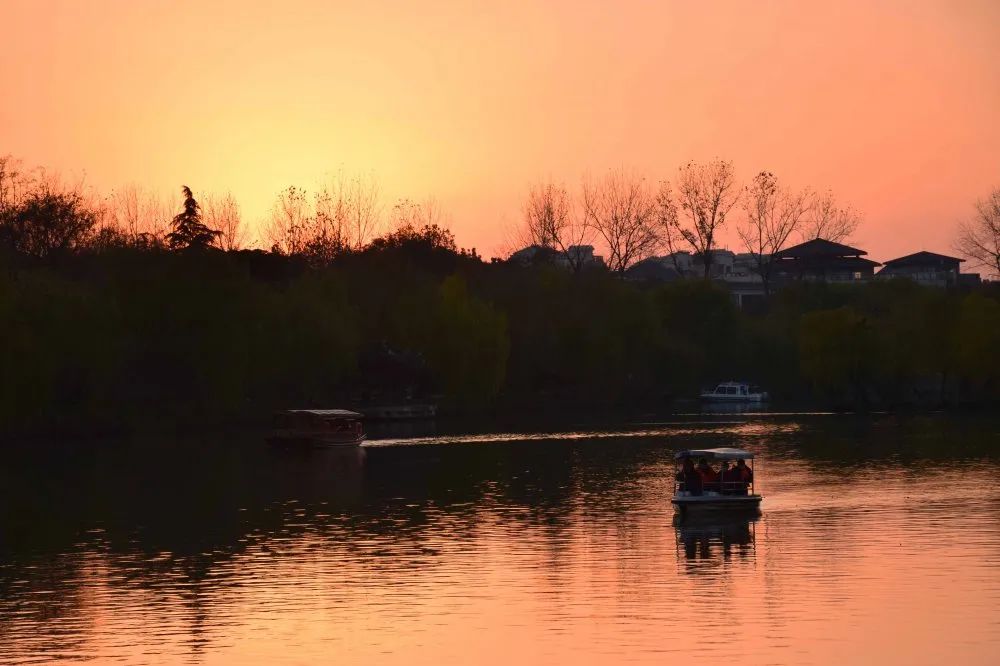
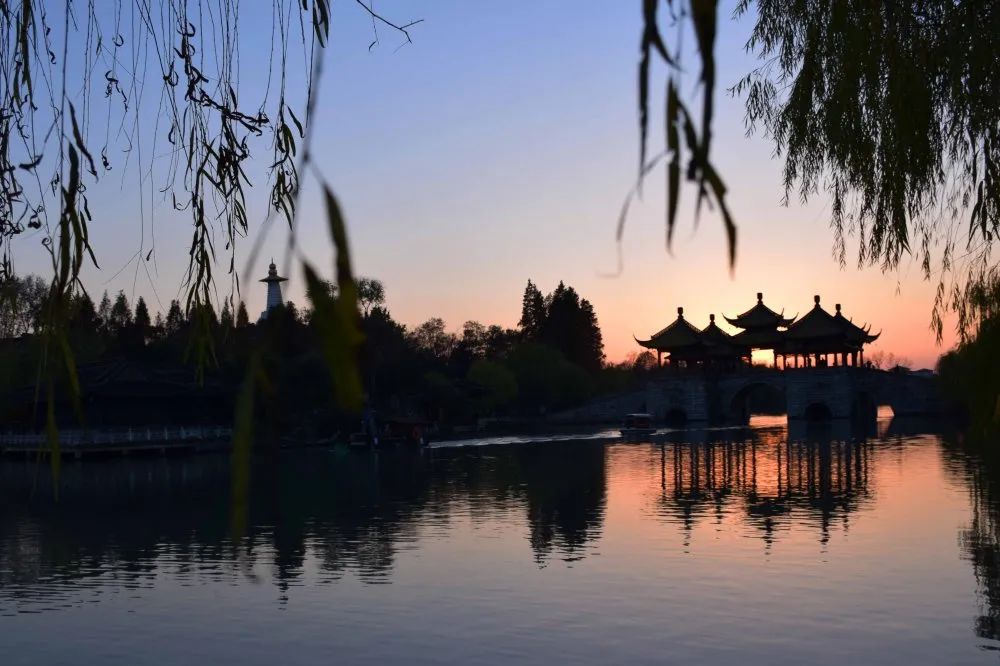
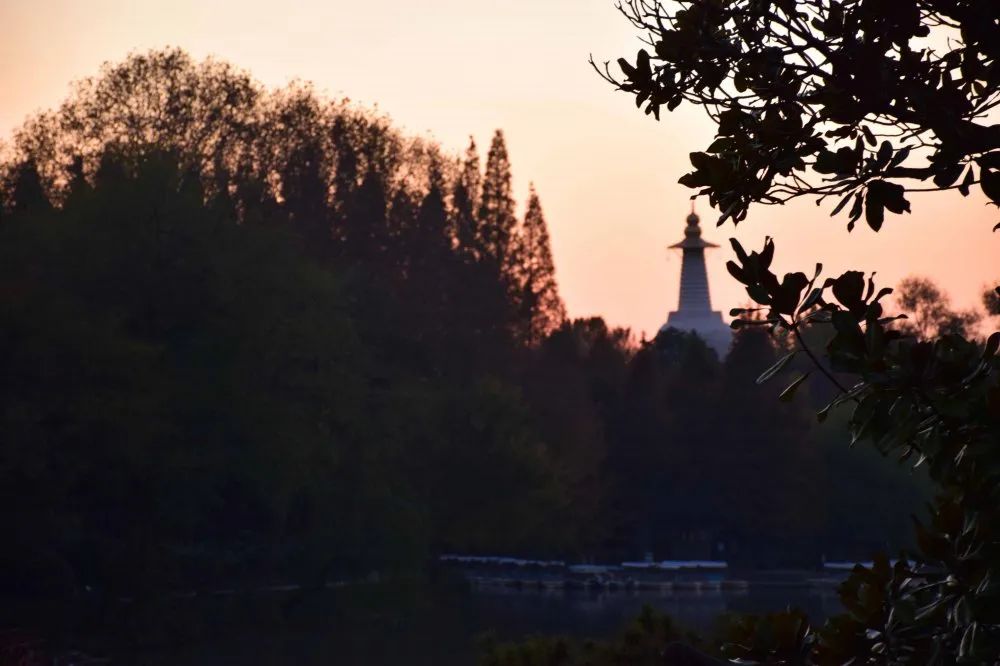

Although Slender West Lake in winter is not as beautiful as spring, it has the advantage of being quiet because it is the off-season. There is no need to check in and take pictures with crowds like in spring, but you can experience the tranquility and beauty of the lakeside immersively.
In the cold, the flowers gave way to the green leaves. What impressed me most in Yangzhou were the willow trees. Almost every lakeside was covered with willows (I don’t know if “Yang” is the same as “Yangzhou”) Therefore, the existence of willows gave this city a Adding to the peaceful atmosphere of time.
In addition to the beautiful scenery, there are also many animals in Slender West Lake ...


evening stroll
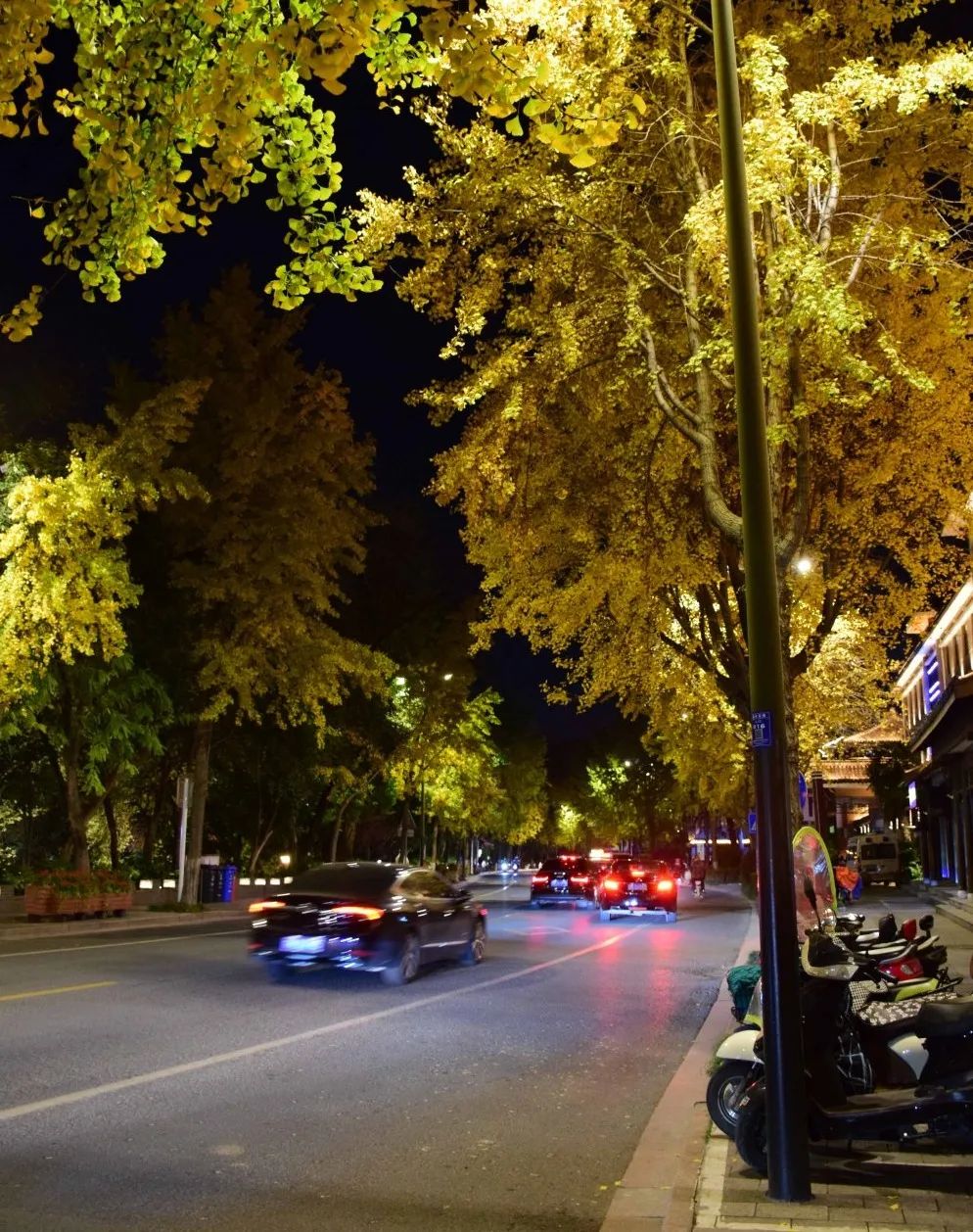
It was still early when we came out from Slender West Lake, so we started another City Walk. Starting from Slender West Lake, we walked to Dongguan Street, then Pishi Street, and finally to Wenchang Pavilion...

Yangzhou is not a big city, so it took only half a day to visit the so-called Internet celebrity attractions - Dongguan Street and Pishi Street - and I happened to pass by here during the day the next day.
Dongguan Street is a commercial and cultural street. Like many ancient towns, the street is lined with quaint buildings. Along the way there are Yangzhou specialty snacks or souvenir shops. It is dotted with many time-honored and characteristic houses.
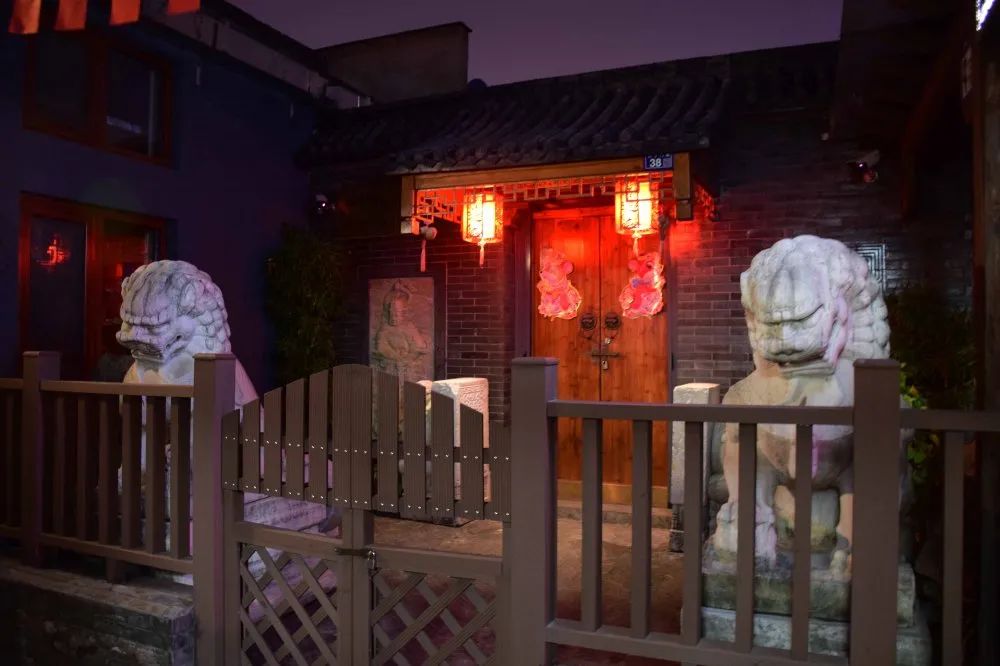
Pishi Street is a street where you can visit stores and check in. Starting from Tian Jiabing Middle School on the street, there are many bookstores or restaurants for young people.
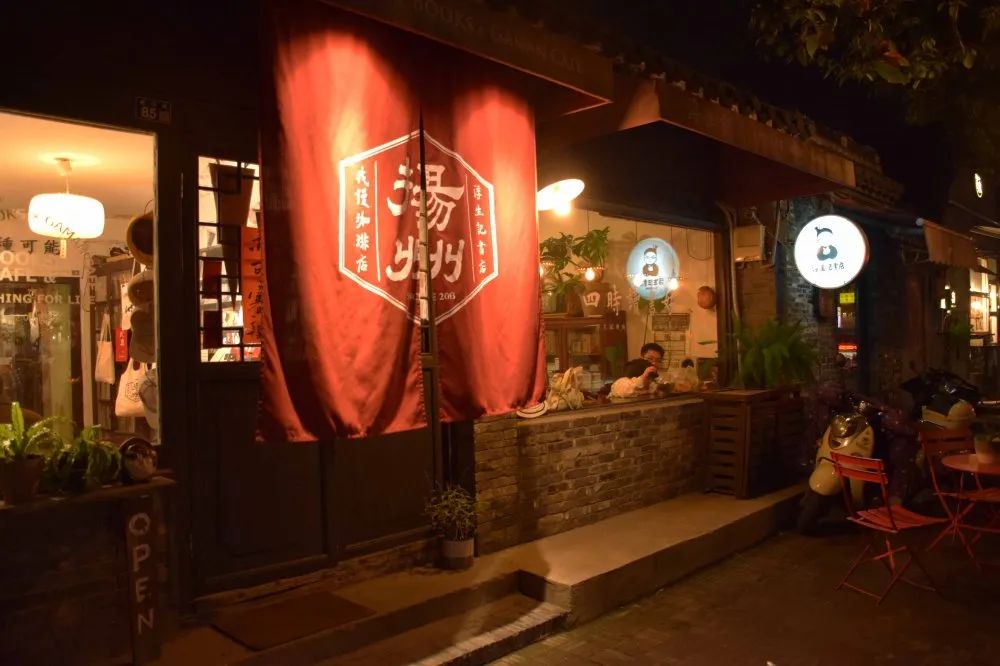
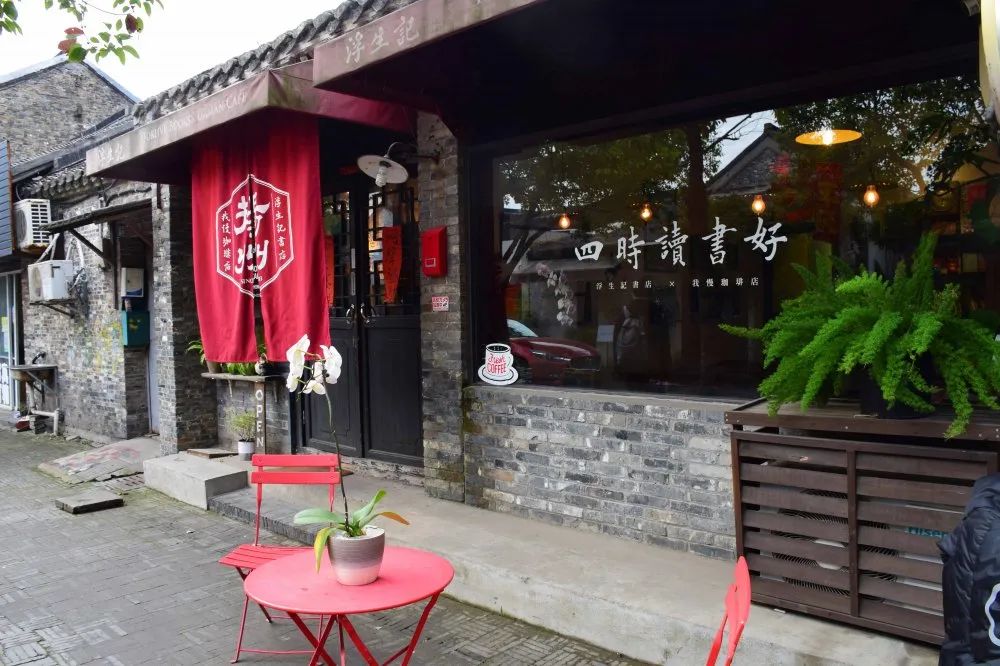
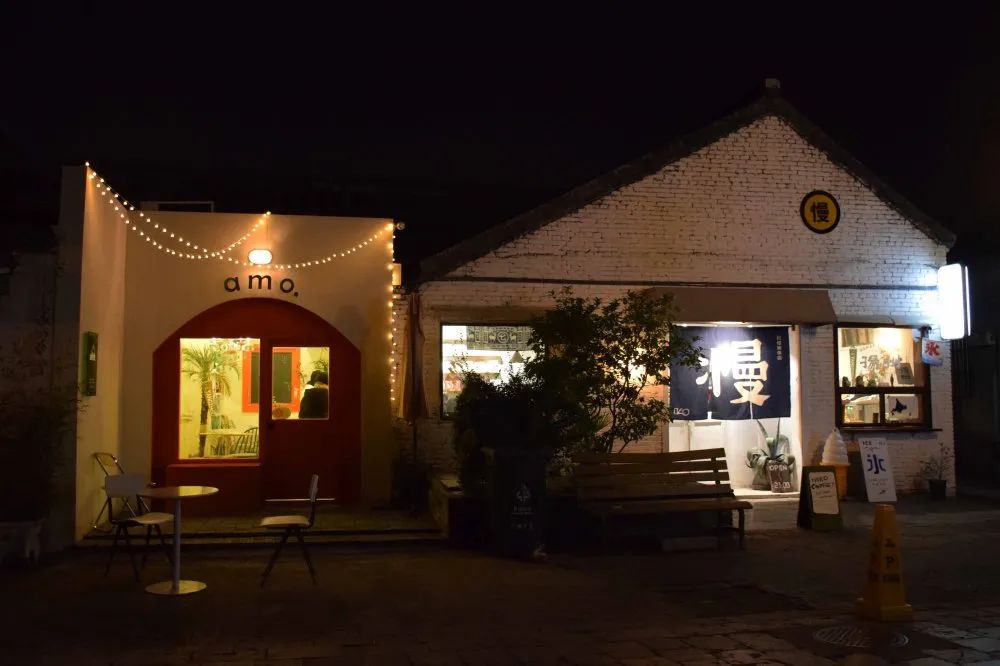
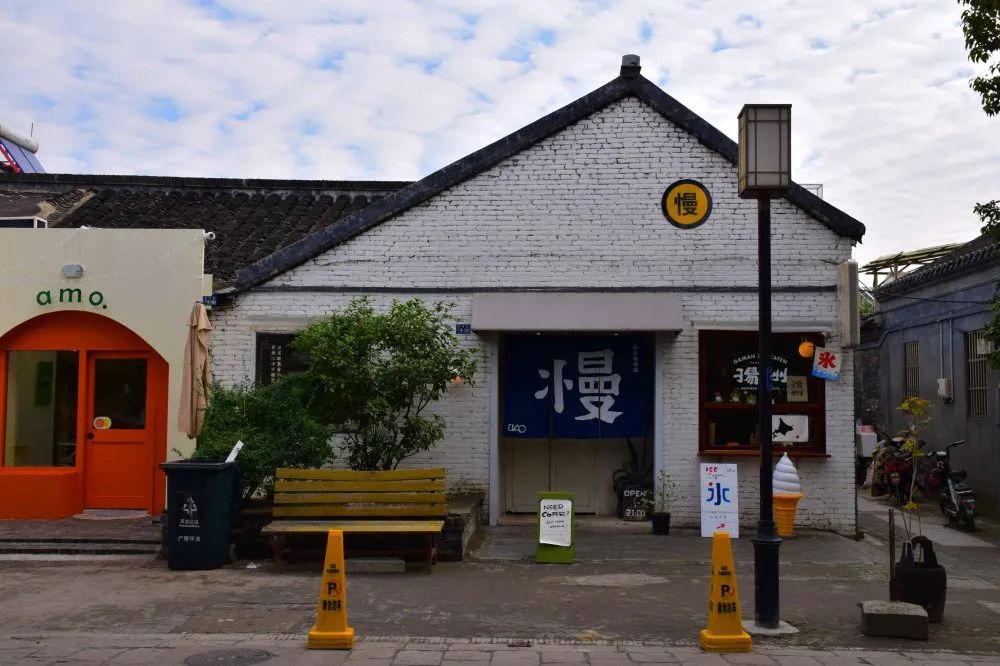
The two on the left are lotus root stir-fry and lotus root rice balls. I thought it was an ordinary stir-fry, but I didn't expect it to be sweet, and so sweet that I, a person who always sticks to the plate, couldn't try a few more bites. Lotus root starch dumplings are glutinous rice balls wrapped in lotus root starch, and they taste pretty good.
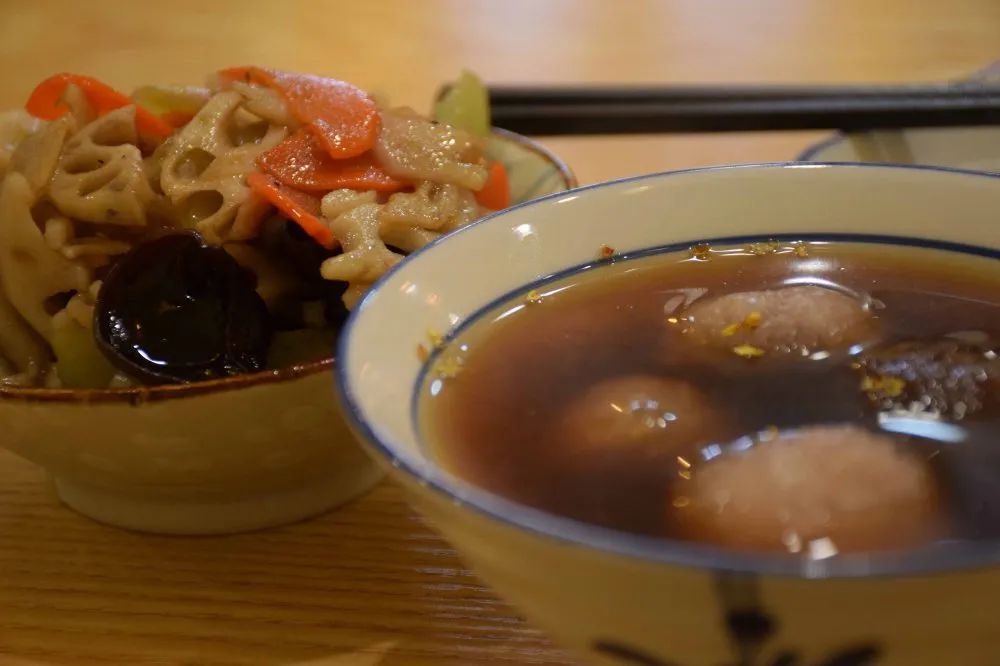
It is said that people in Jiangnan like sweetness. It was in Yangzhou that I finally experienced the sweetness that is so sweet that it is hard to swallow.
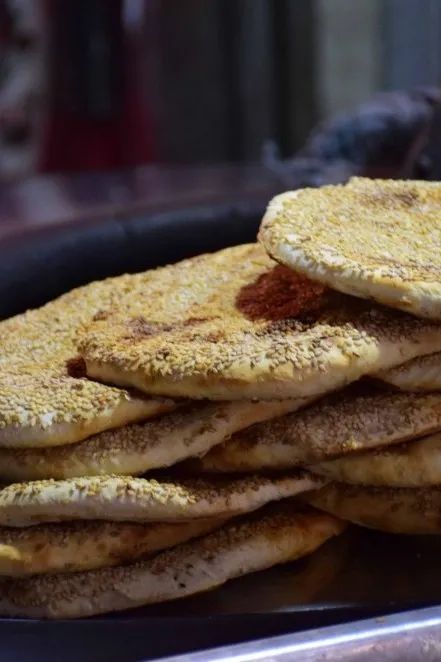
At night in Yangzhou, perhaps because we were by the river, the lights seemed particularly quiet.
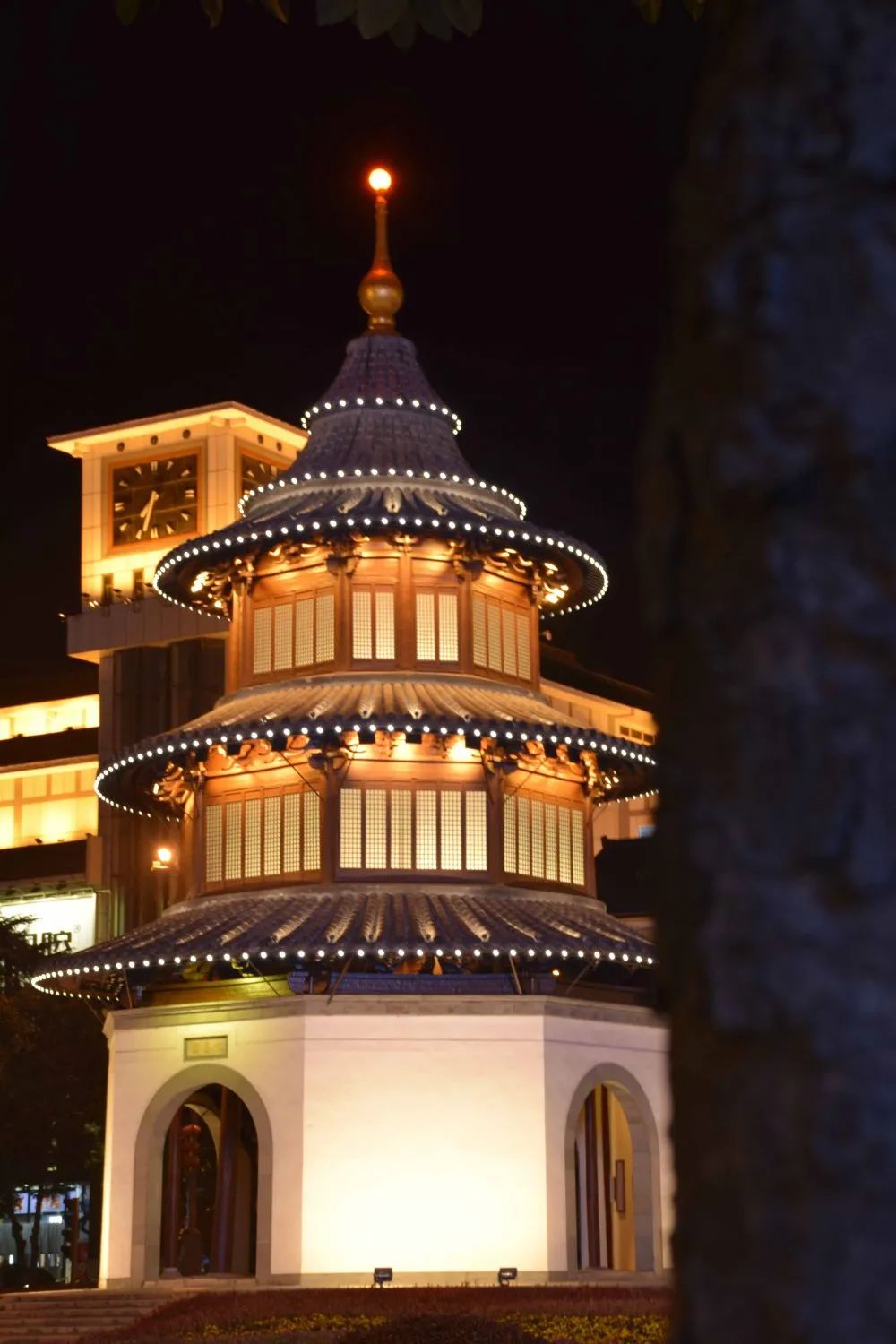
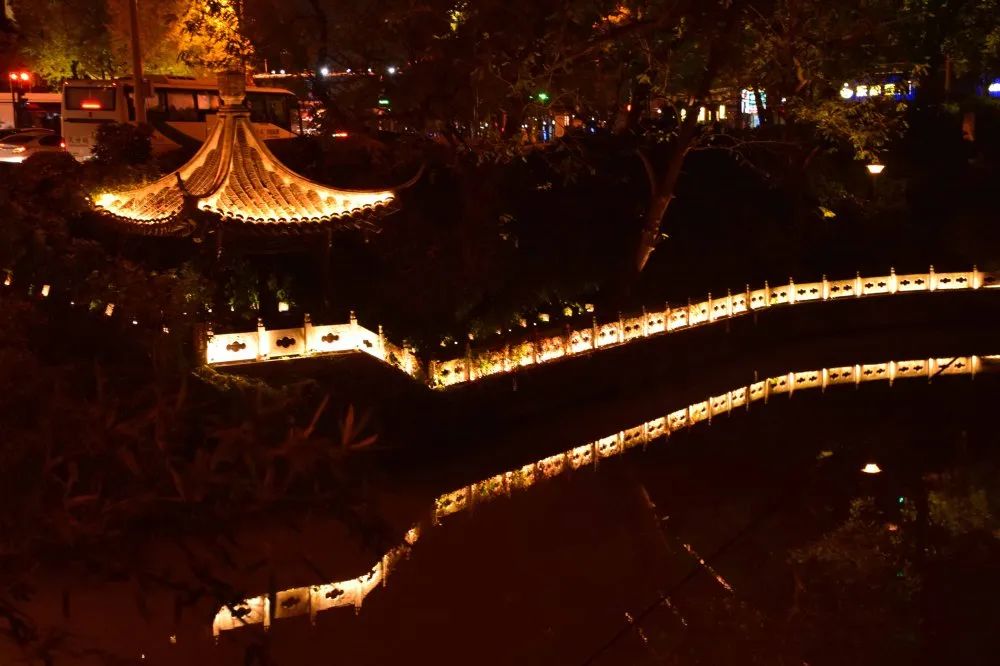
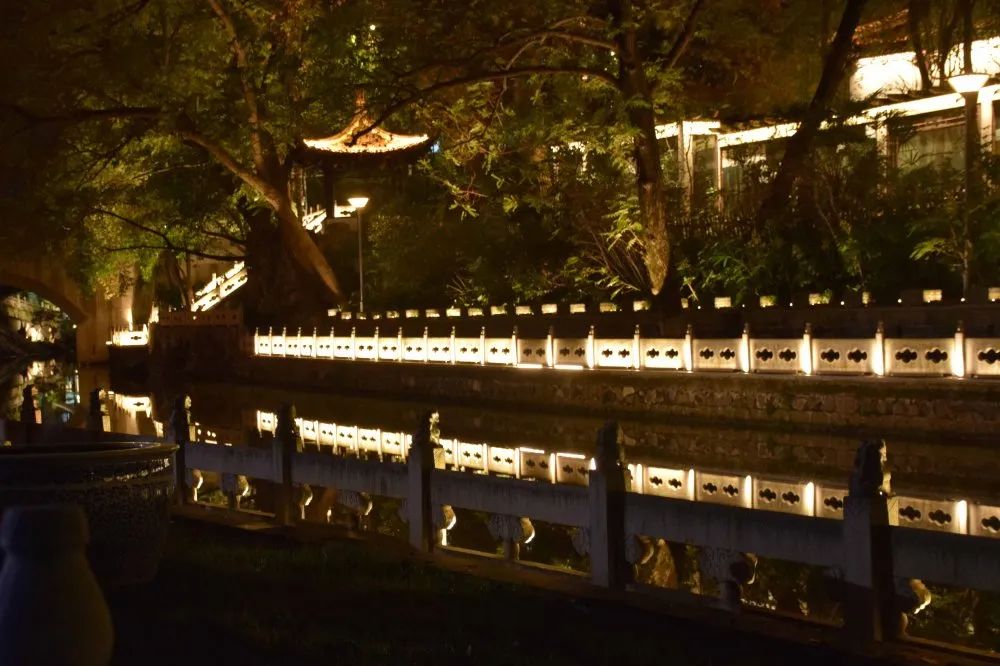
Walking on the streets, there are three things that impressed me the most in Yangzhou. One is the willow tree mentioned above, and the other is the footbath and bathroom.
There is a Wang's Garden next to Dongguan Street, which attracted my attention before I got here. However, it is not open for the time being because it is still under maintenance. It is surrounded by pedicure shops.
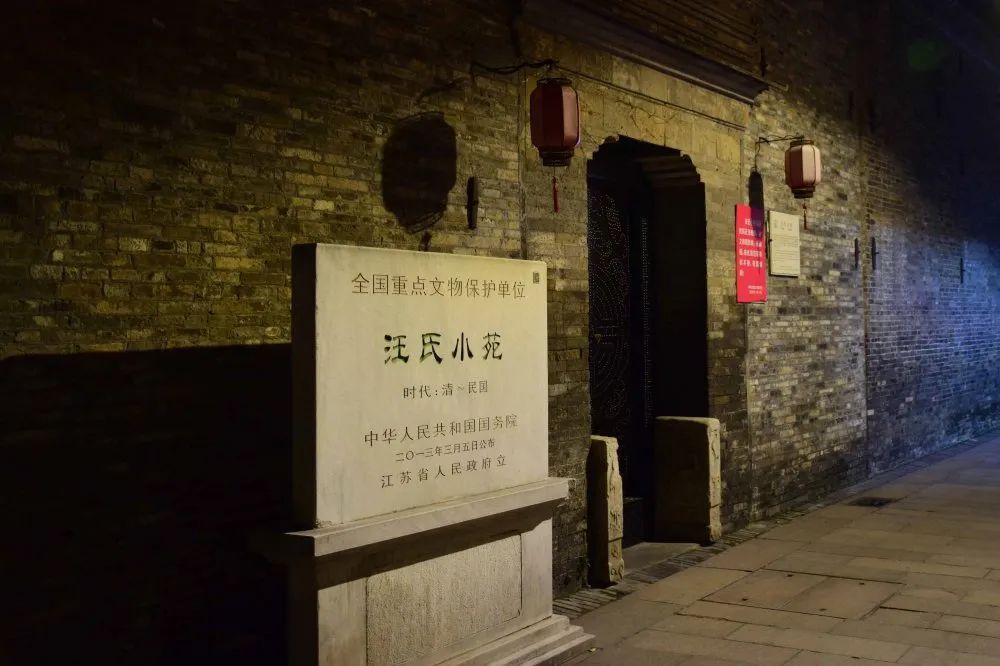
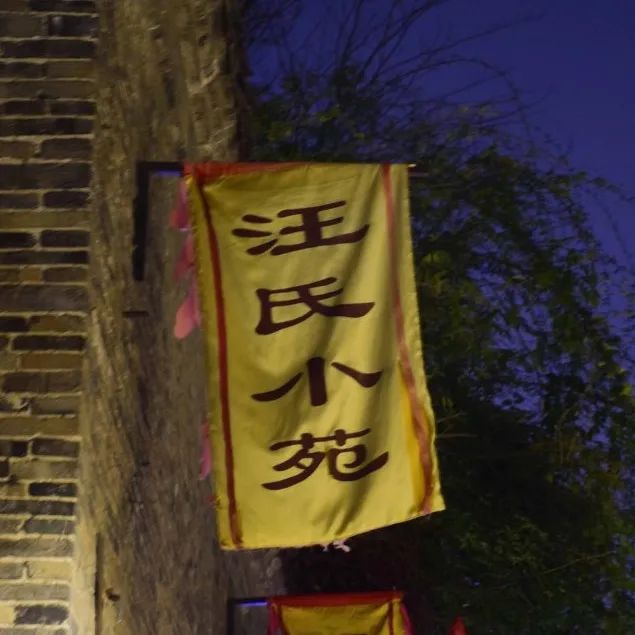
Wang's Garden
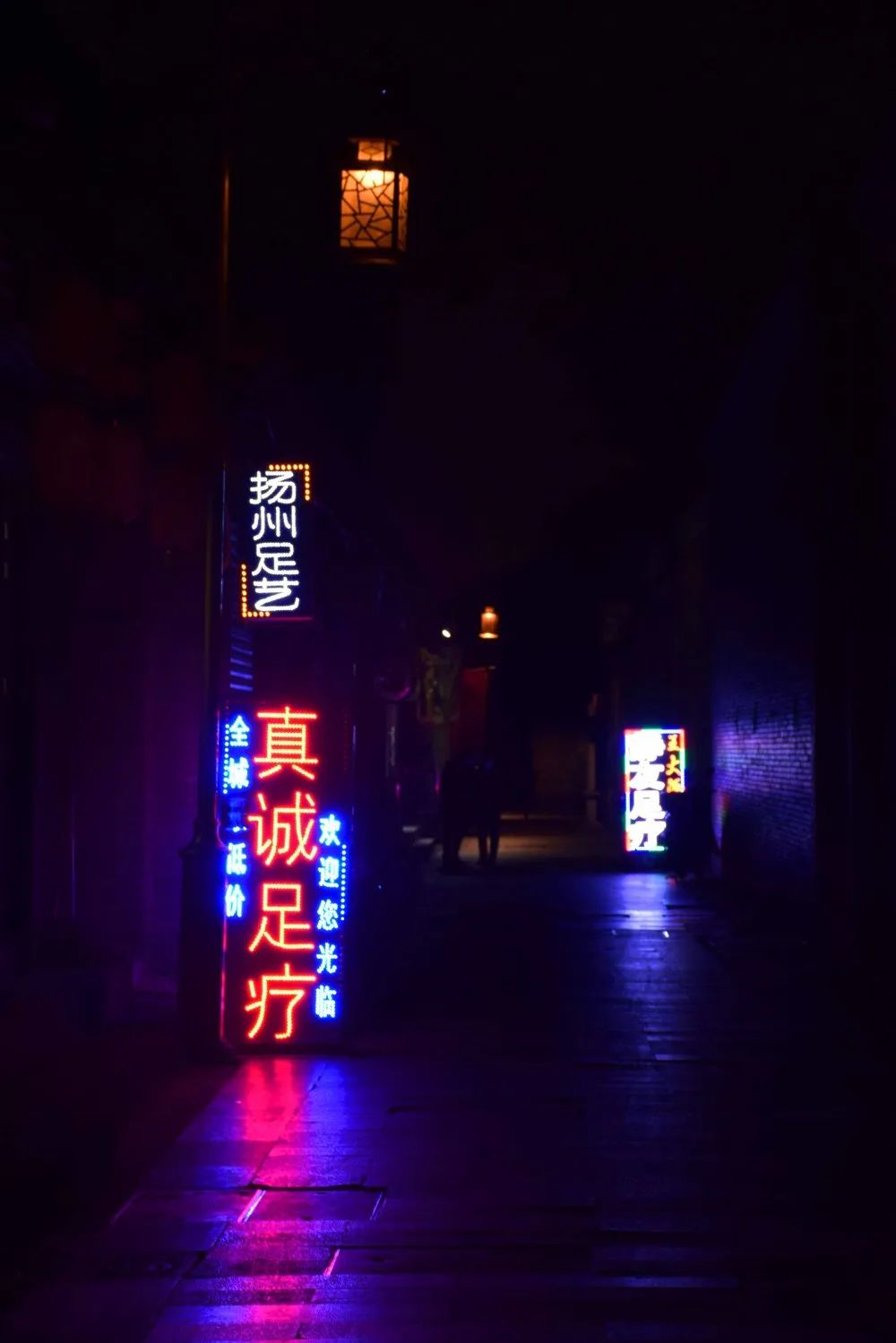


Yangzhou morning tea
Water for skin in the morningWater for skin at night
Representatives of Yangzhou cuisine recommend morning tea first. Have a cup of tea in the morning and chat while eating and drinking.


Morningskin bag water
There are three springs in Yangzhou, namely "Yechun", "Fuchun" and "Gonghe Spring". Early the next morning, I chose this restaurant - the delicacies are meat-free; elegance and simplicity are hard to come by - to experience Yangzhou morning tea.
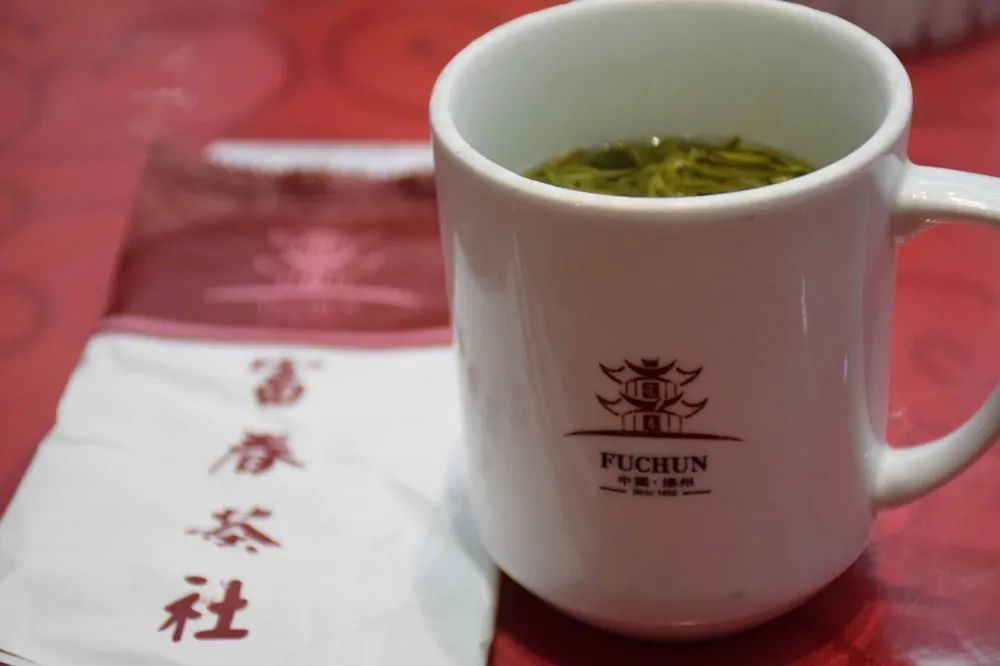
After drinking a cup of "Kui Longzhu", you will become skinny water, which means that you have filled your stomach with a lot of tea early in the morning.
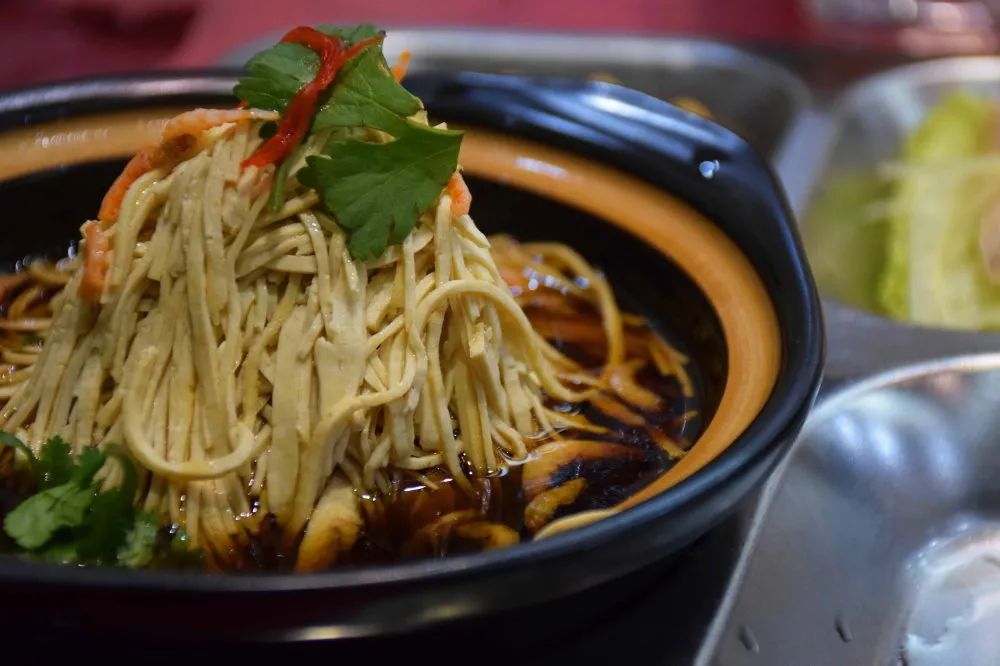
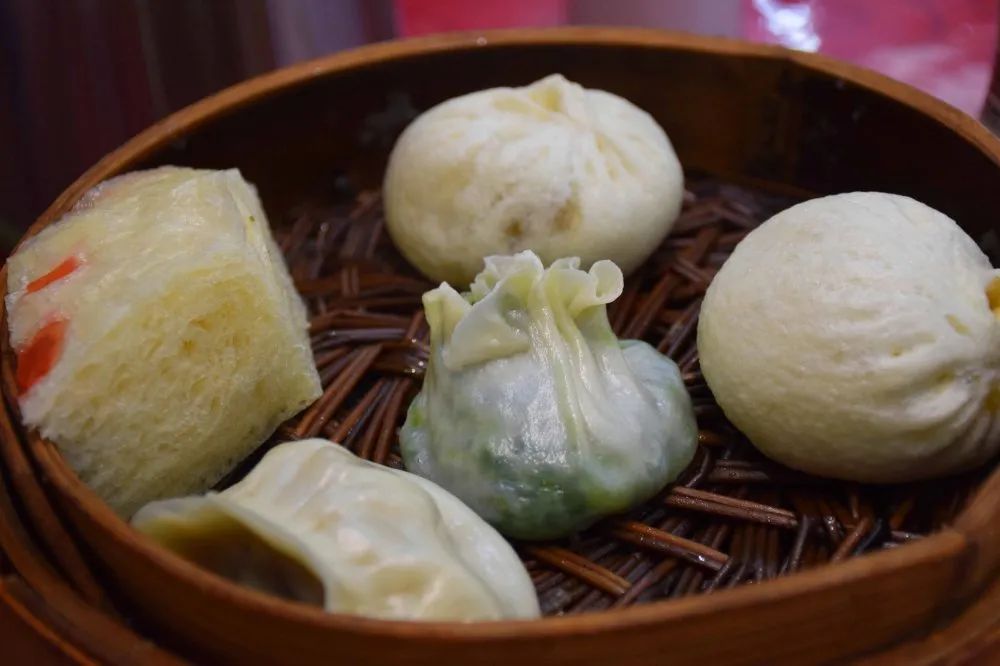
Then there are the Yangzhou-style dried shredded noodles and dim sum - crab roe buns, sandwich buns, shrimp dumplings, jade shaomai and thousand-layer oil cake. Although the dried shreds are not as thin as rumored, the taste and texture are indeed great.
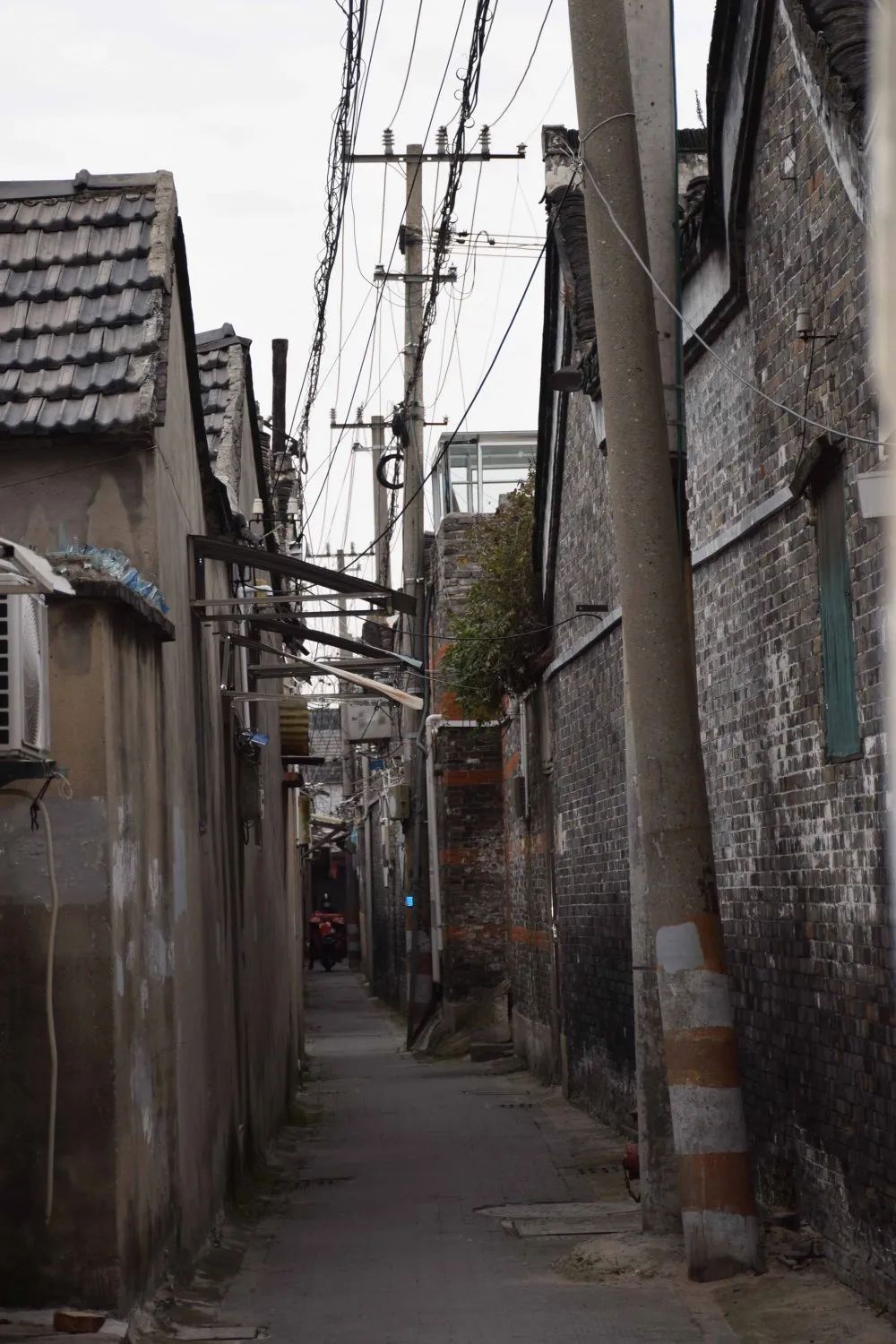
 City Walk
City Walk
Checking in one by one along the coordinates of the map seems to be a stick to the rules and nothing new. But what’s interesting is that the map itself is an adventure deep into a maze of traditional neighborhoods. If you had planned it yourself, you might not even think of visiting this neighborhood, let alone experience the life of real Yangzhou people.
The streets in this neighborhood are narrow, the paths are complicated, and many houses are still under repair, giving it a sense of a village in the city. Wells, domestic dogs, and dried radishes can be seen everywhere. What's more worth mentioning is that we also saw "rabbits walking" with our own eyes.

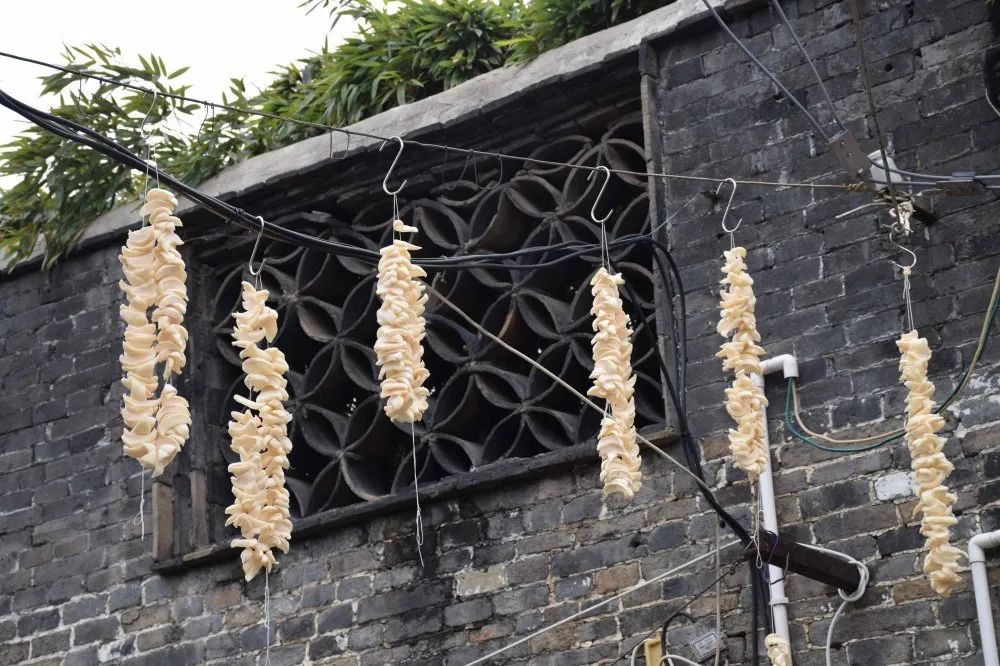
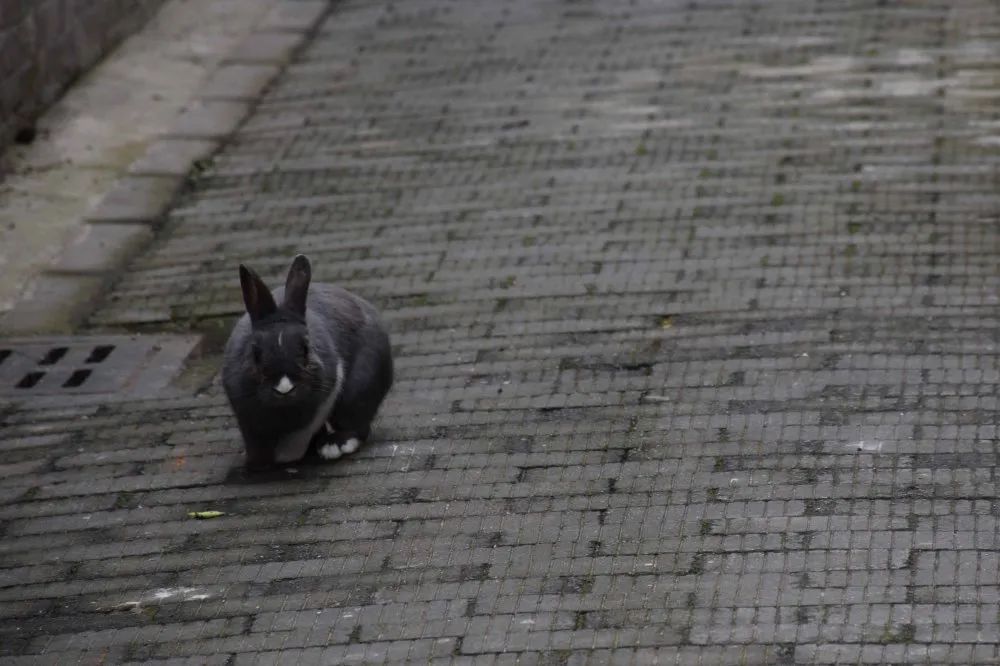
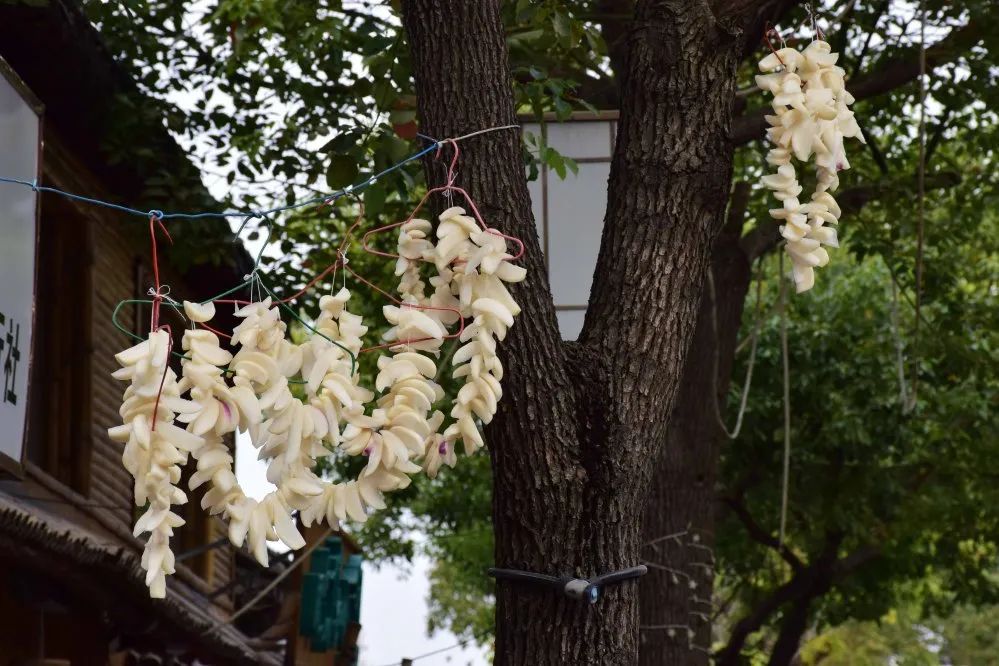
After having morning tea at Fuchun Tea House, we crossed the Desheng Bridge "Three Knives" Street , turned left along Guoqing Road, and turned right into Xinsheng Street. This street is said to have been prosperous during the Republic of China. No. 23 was the International Hotel Luyang Hotel in Yangzhou during the Republic of China. No. 26 diagonally opposite was the Continental Hotel built during the same period. During the Japanese occupation Once used as a "comfort station", No. 28 is the Jing family residence of the Qing Dynasty.
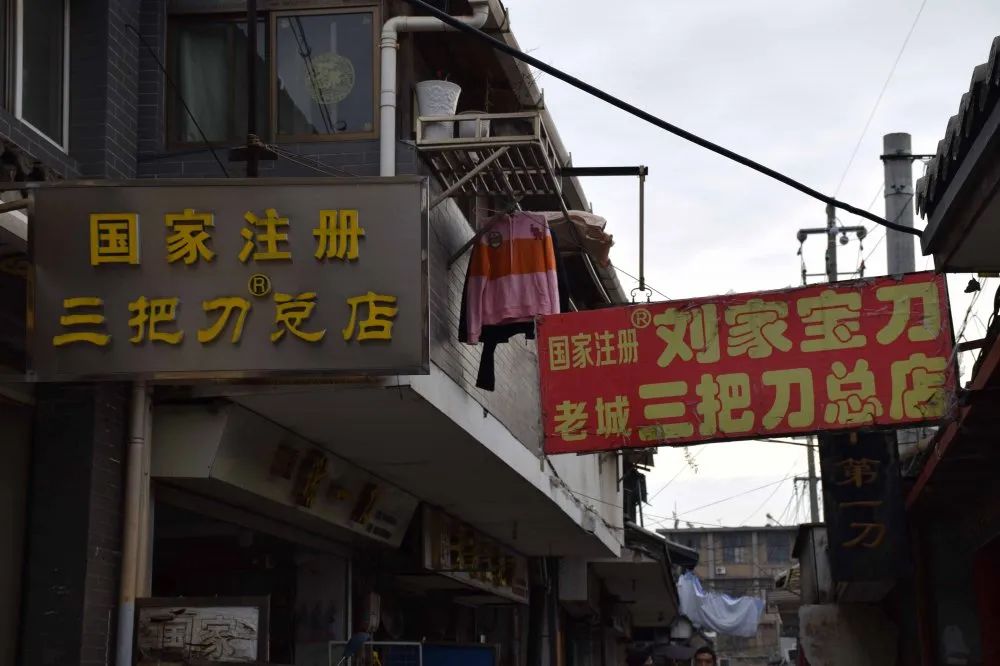
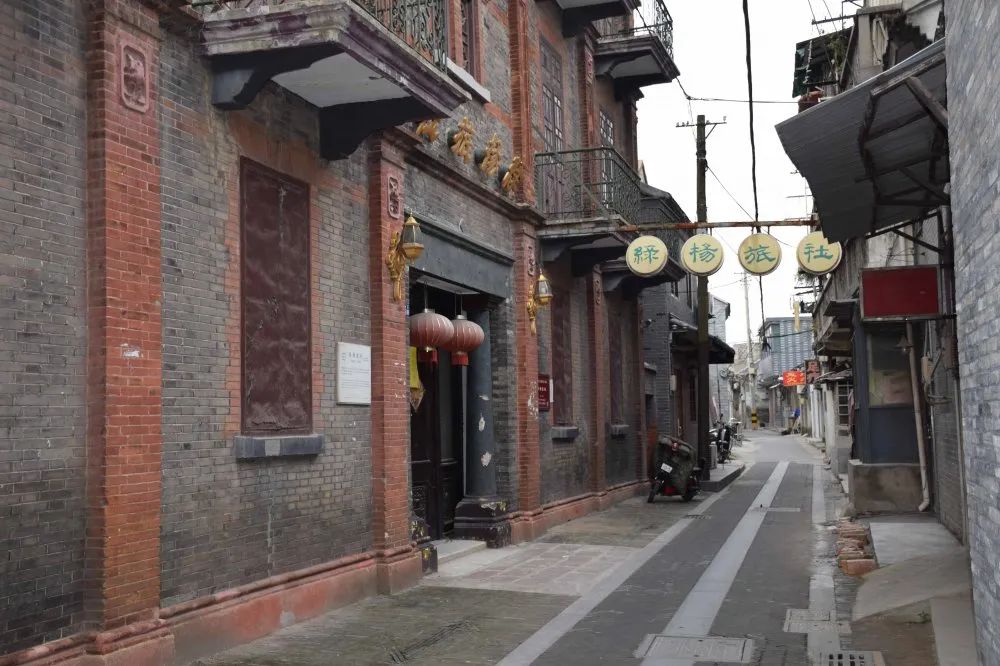
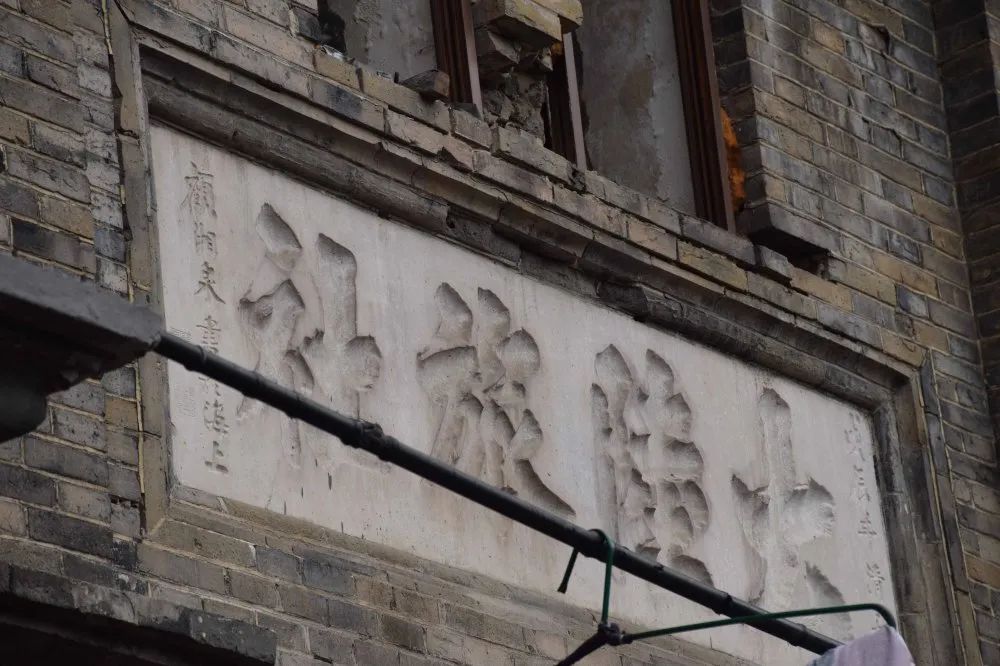
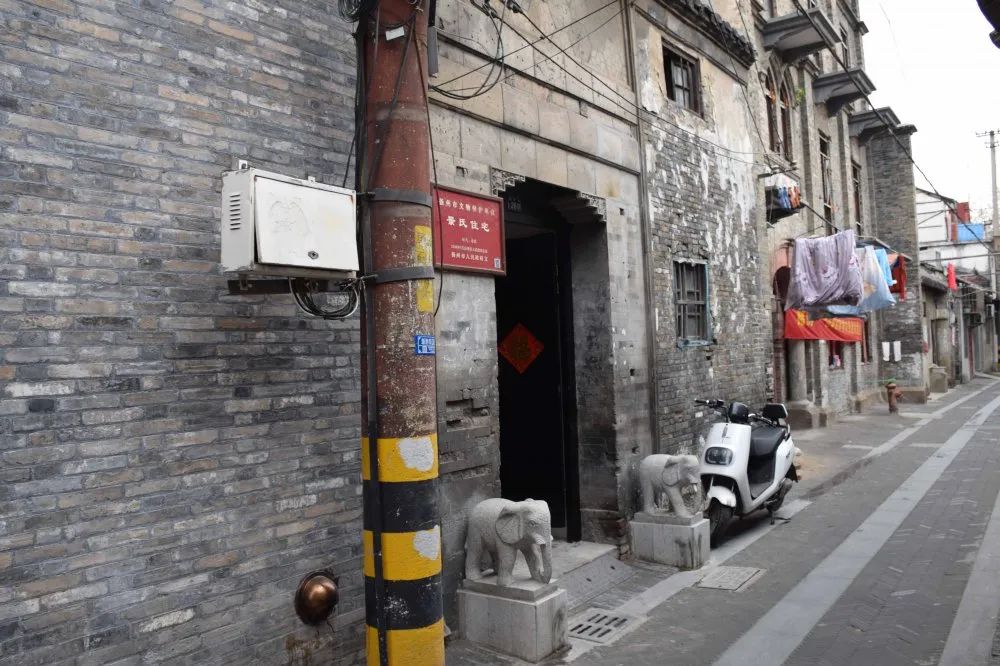
Turn back from Xinsheng Street, cross Guoqing Road, and turn into Sanyige Road. Walking along the road, you can see the old bathroom "Yongning Spring" , and the Jiyuan Hotel with a typical Republic of China string-style building. Next to the Ancient Sanyi Pavilion where Liu Guanzhang is worshiped, I met a kind grandmother and took a photo of her next to a stick of incense at the height of the person.
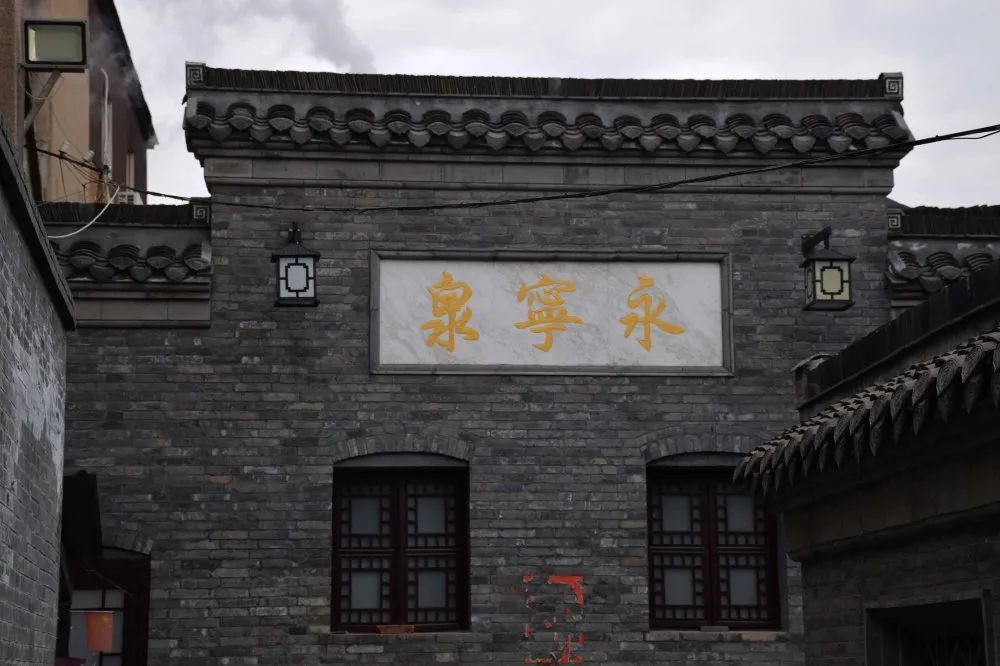
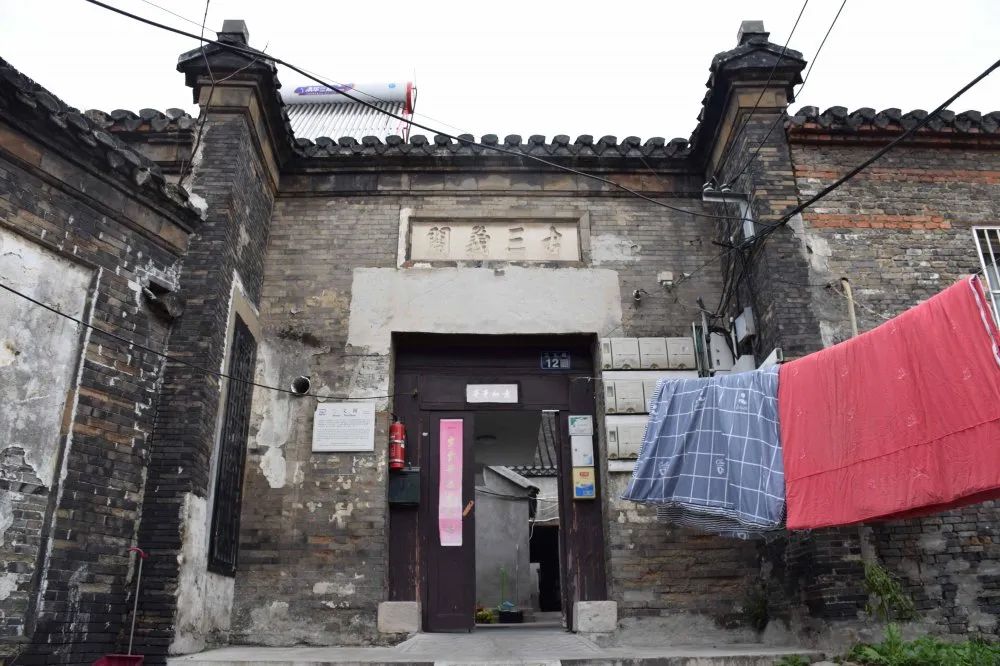
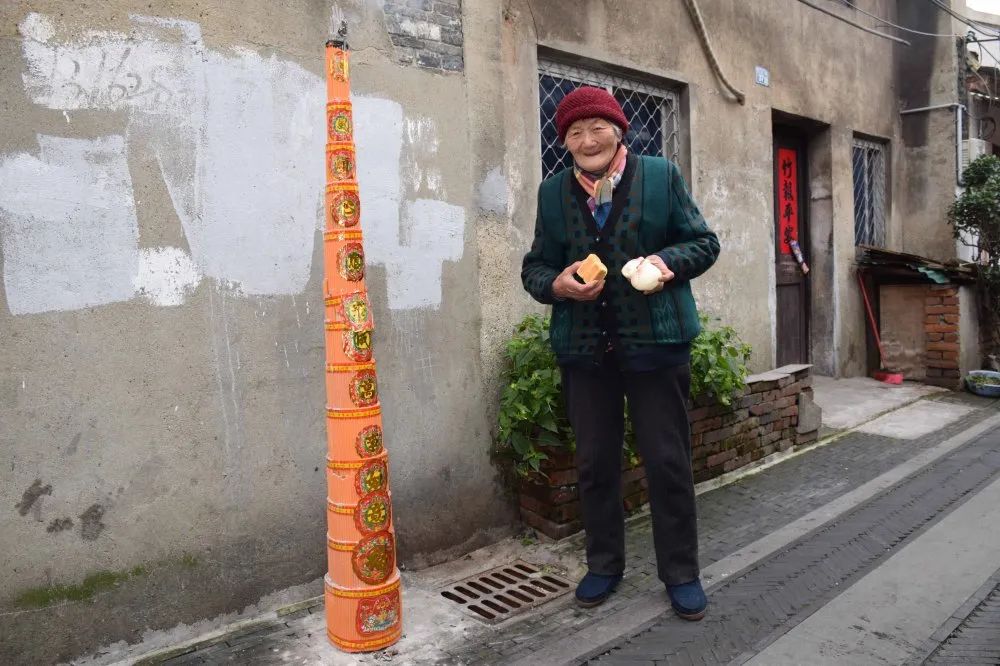
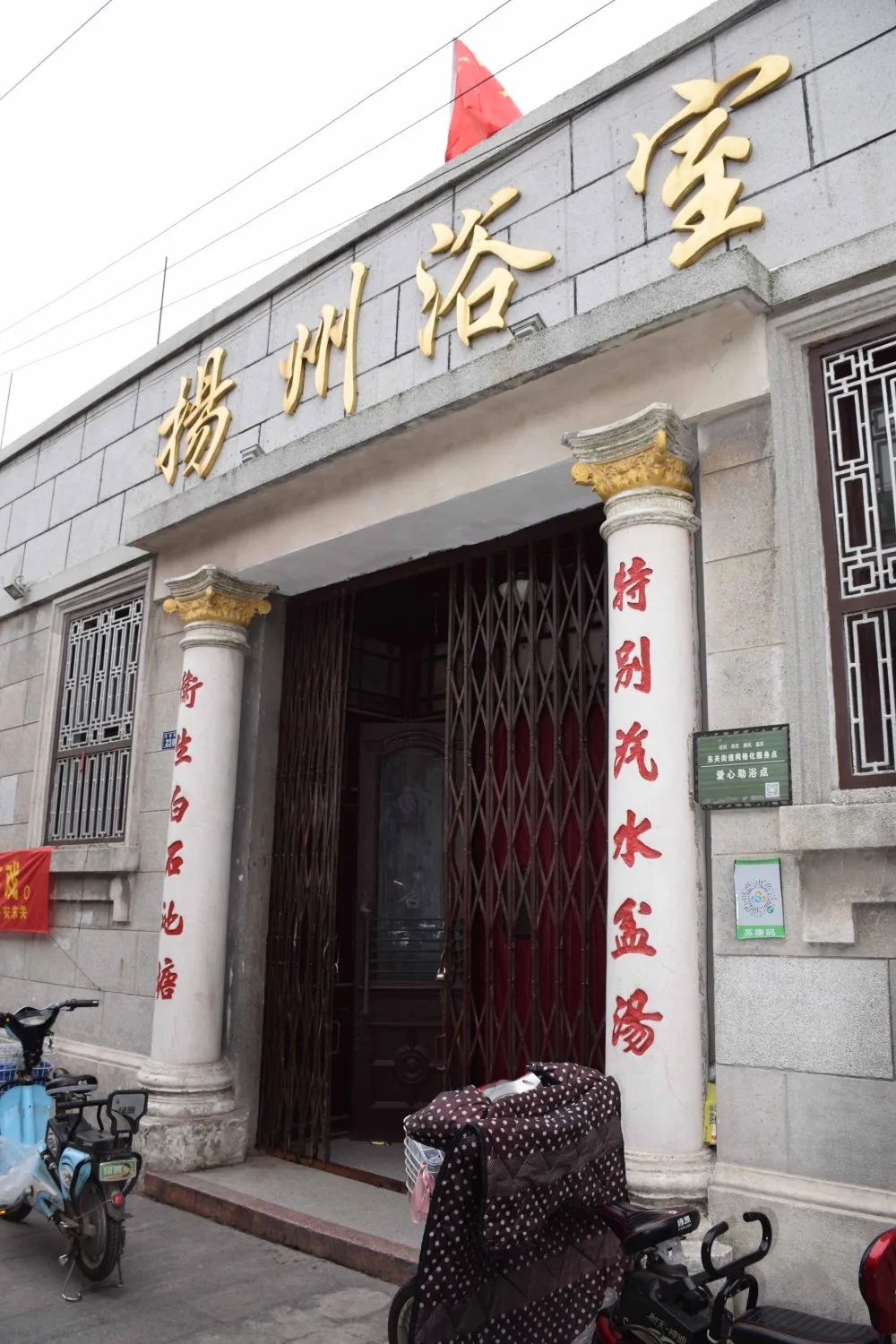
Go right from Gu Sanyi Pavilion, return to Guoqing Road, and enter Su Chang Street. You can see the Western-style Yangzhou bathroom on the street. The third most popular bathroom in Yangzhou is "water foreskin", which means taking a bath in the bathroom: a person is immersed in the water, and the water surrounds the person, so the water foreskin is also used.
 Watery foreskin at night
Watery foreskin at night
"Qiu Chi Notes" records that when Su Dongpo was in Yangzhou, he not only went to the bathroom to take a bath, but also asked someone to rub his back.
He also greeted the back-wiper and said, "Please be gentle with your hands and feet. My body is not dirty and there is not much dirt on it."
The bathroom scenes in Yangzhou in the past are so vividly vivid.
Take Mr. Dongpo’s poem as evidence:
"How can scale and dirt be tolerated? When you look carefully, there is nothing there. When you send a message to wipe people's backs, when you work hard all day long, you wave your elbows. With a light hand, a light hand, a layman is originally free from dirt."

Further forward, Su Chang Street is connected to Dingjiawan. This area is a unique old street in Yangzhou. The huge "D" character is the settlement of ancient salt merchants. Si'an Office was the place where salt merchants from Hunan, Hubei, Jiangxi and Anhui provinces held discussions during the Qing Dynasty. Sun's residencenext door was originally the residence of salt merchant Jia Songping. Jia Songping was one of the famous "money-raising and amphibious" figures in Yangzhou in the Qing Dynasty.
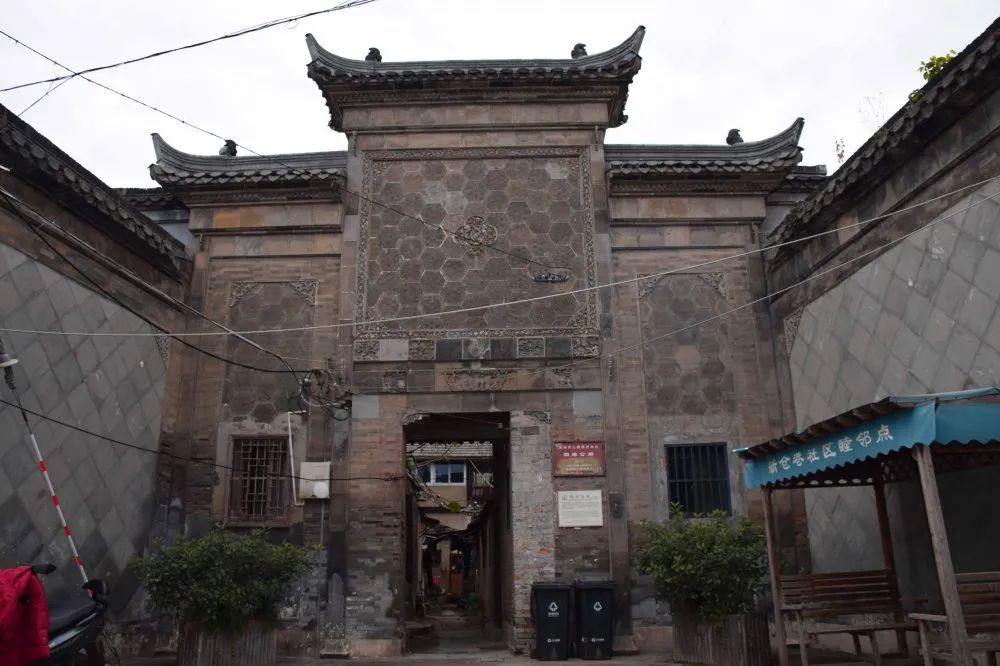
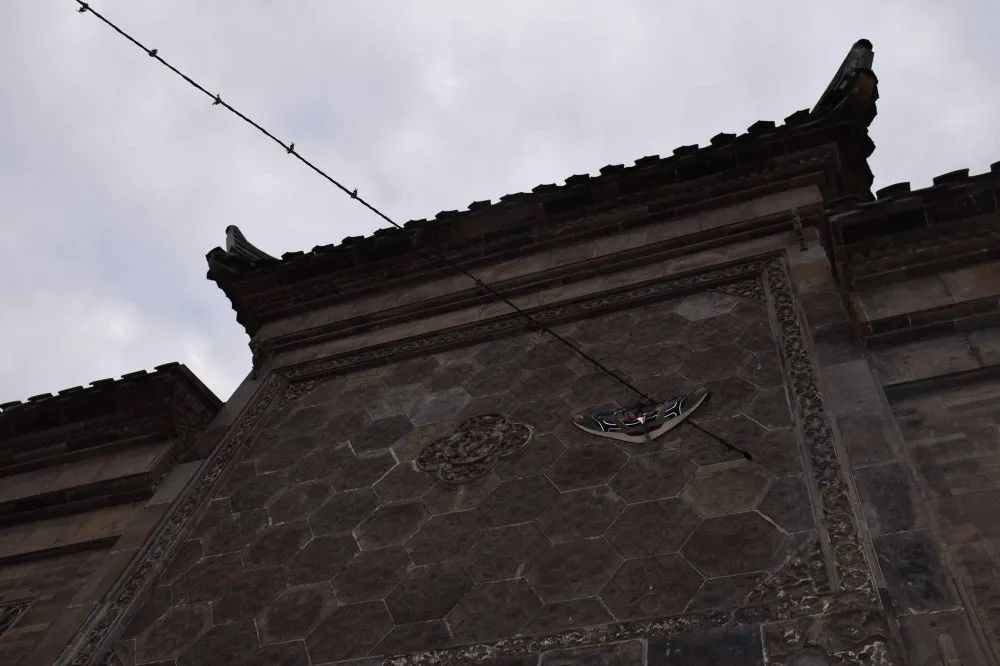
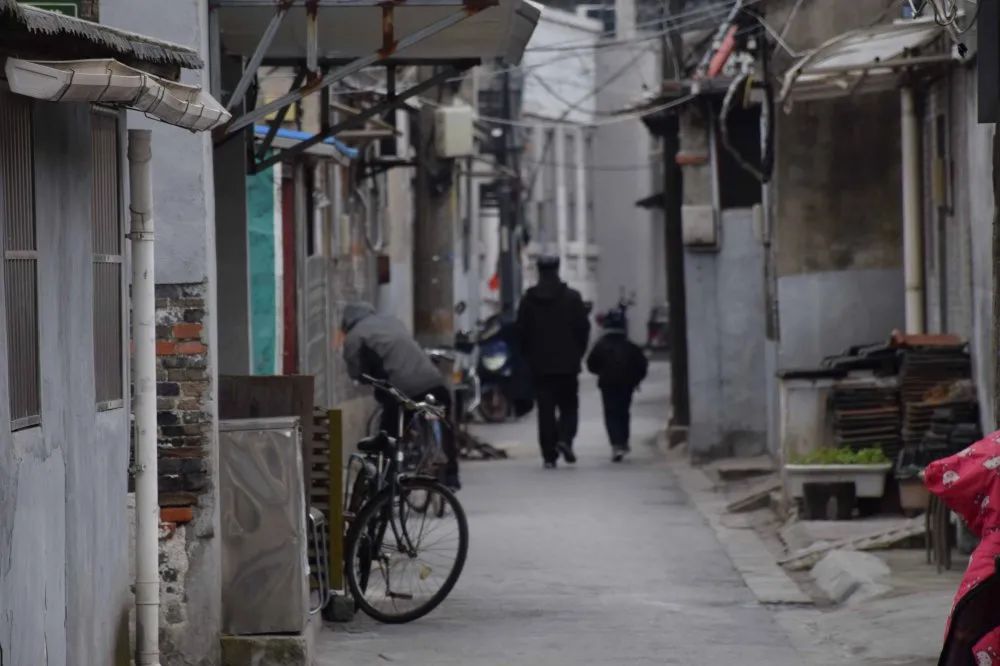
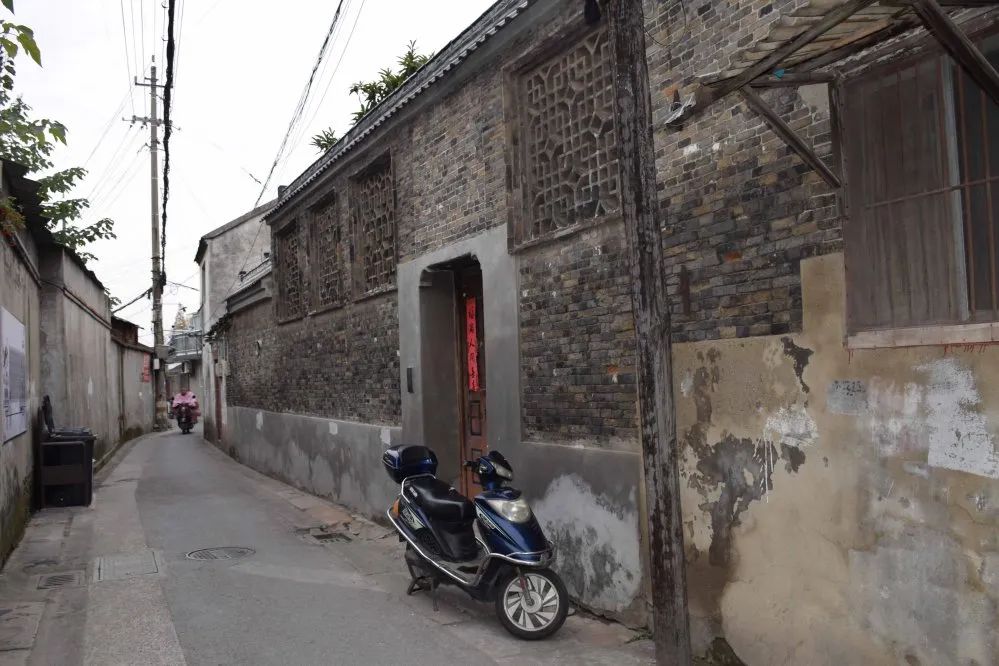
Then follow the "Tathagata Pillar" alley on the right, turn several turns, and go east to Xiaopangu , which was built by the Governor of Liangjiang in Guangxu of the Qing Dynasty. The park has deep valleys and winding stone paths, making it a truly unforgettable garden experience.
 Small CapAncient
Small CapAncient
The false peaks in the park are dangerous and the roads are dangerous, the cang rocks are used to explore the water, the valleys are deep, and the stone paths are winding, so it is named "Xiaopan Valley".
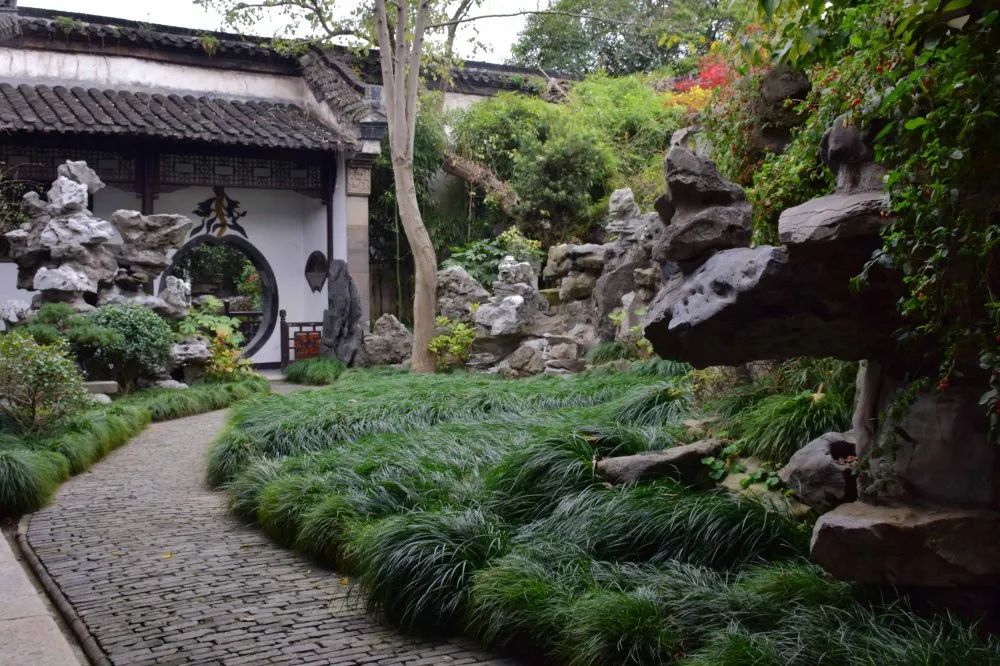
Xiaopangu is unique among Yangzhou gardens. Compared with the famous Ge Garden and He Garden, Xiaopangu occupies a small area with not many buildings and rocks. However, the beauty is that it is concentrated and compact, and less can win more. That is, seeing the big from the small. Between the pools, rocks and pavilions, there are some deep, some cheerful, some high, some low and flat, with sharp contrast and changeable rhythm. In a limited space, the scenery is adapted to local conditions and follows the shape, creating the momentum of deep mountains and swamps, so close to the end of the world. It's thought-provoking and unmatched by other gardens.
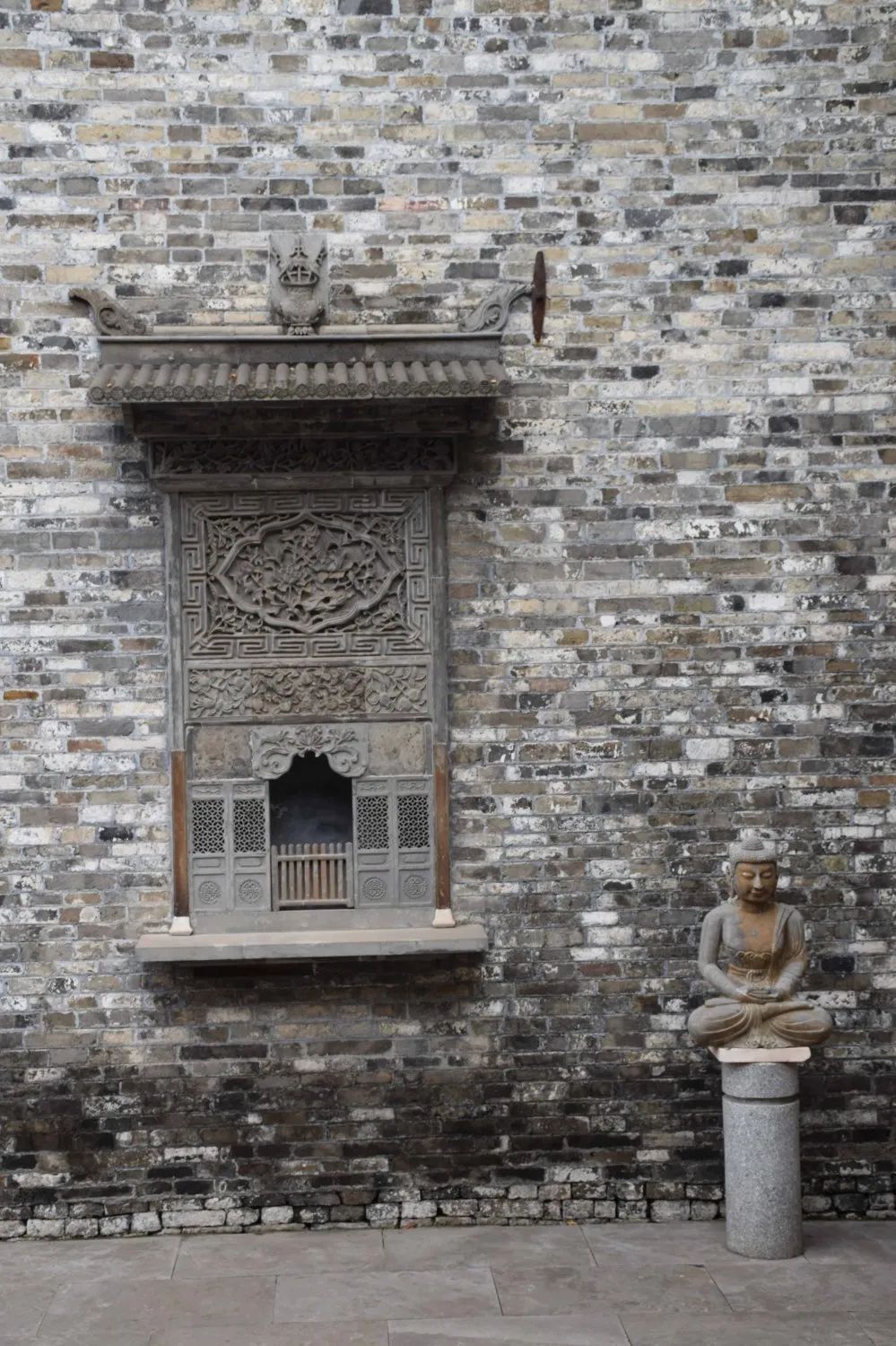
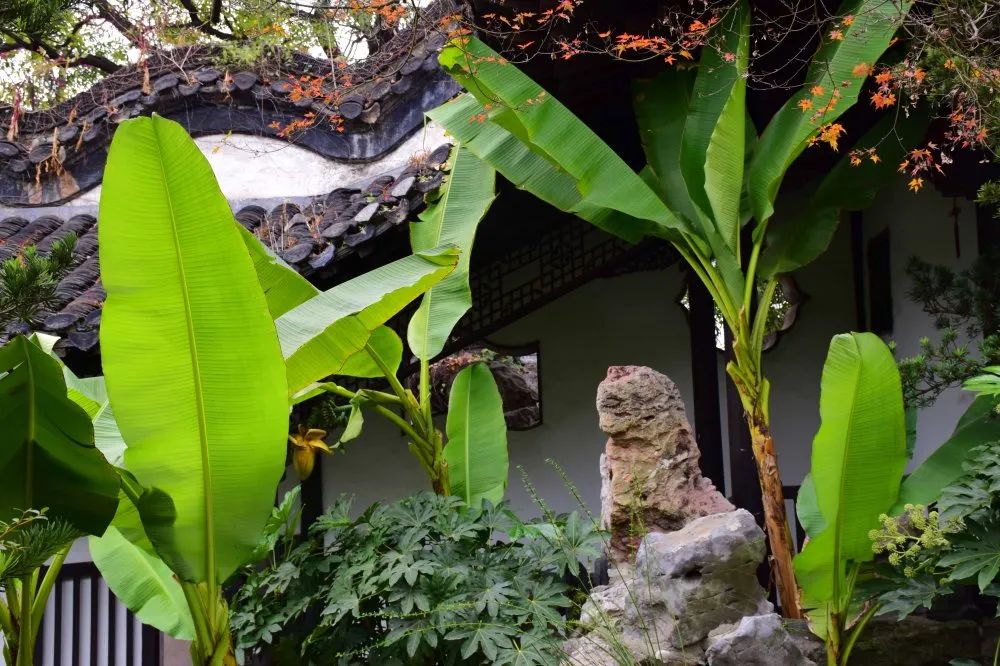
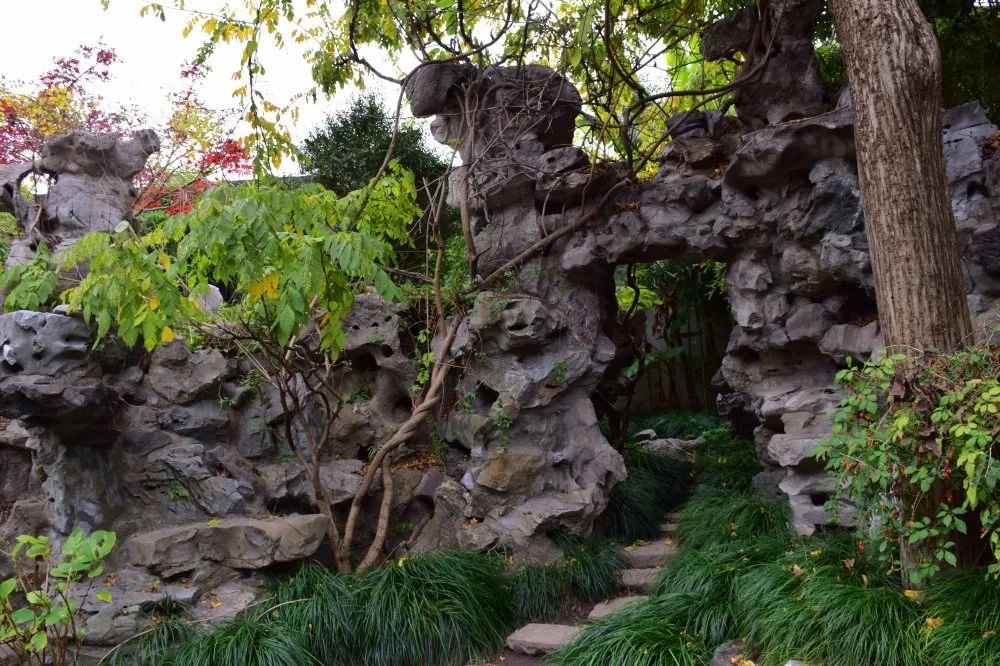
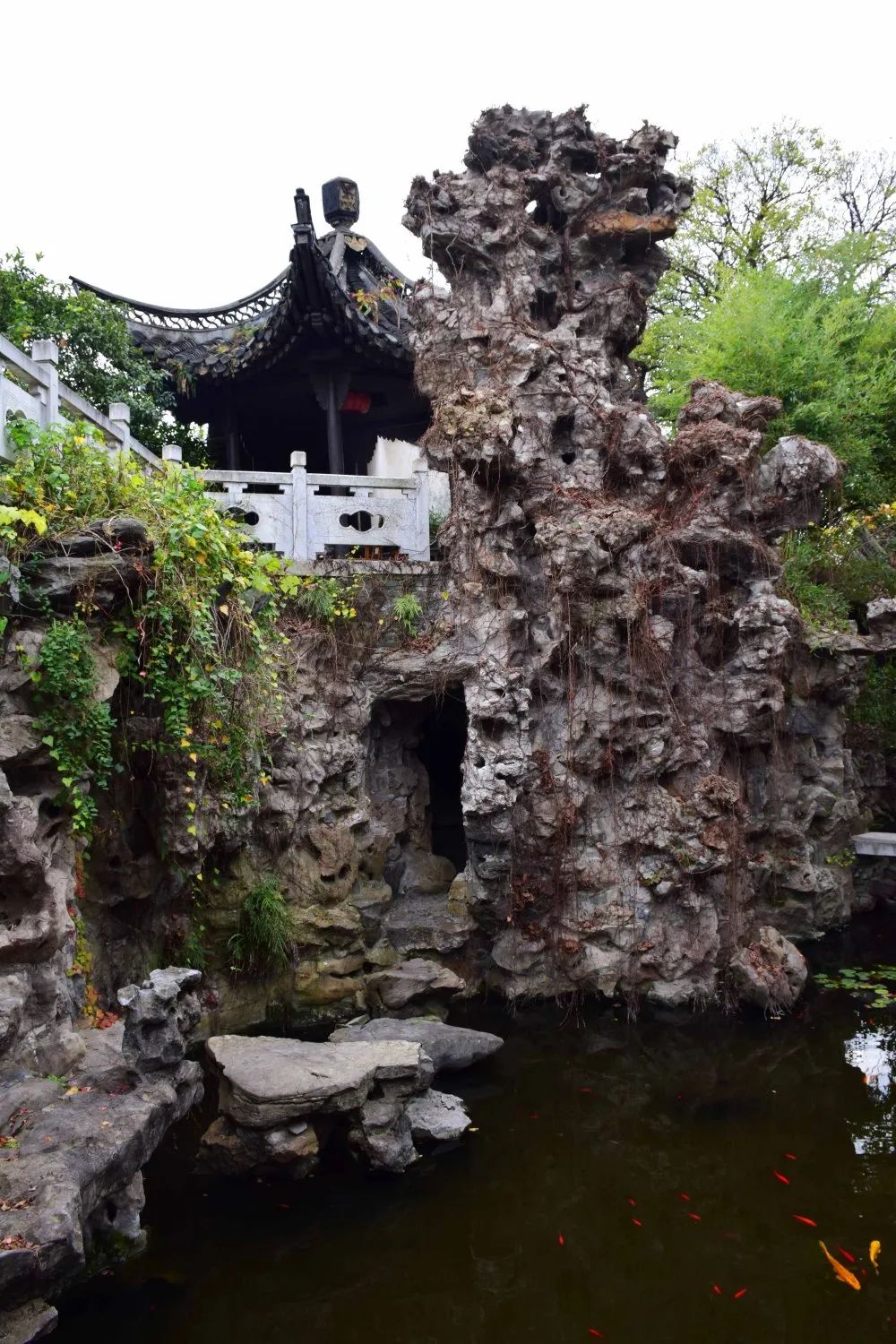
Xiaopan Valley is located in Dashu Lane, Dingjiawan. It was purchased and renovated by Zhou Fu, the governor of Liangjiang in the 30th year of Guangxu in the Qing Dynasty. Maybe it can't be called a garden exactly. It should be just a back garden of the Governor of Liangjiang. But because there are so few people there that I am the only visitor, it feels like I own this garden alone. Then I can wander around, freely climb rockeries, explore caves... and have a lot of fun.

 God is present
God is present
God is present
The place is not easy to find, maybe the map used is not correct. Anyway, after searching for a long time, we finally got around to the door. It is temporarily closed during the epidemic, but just stopping at the door also satisfies this unique habit of mine.
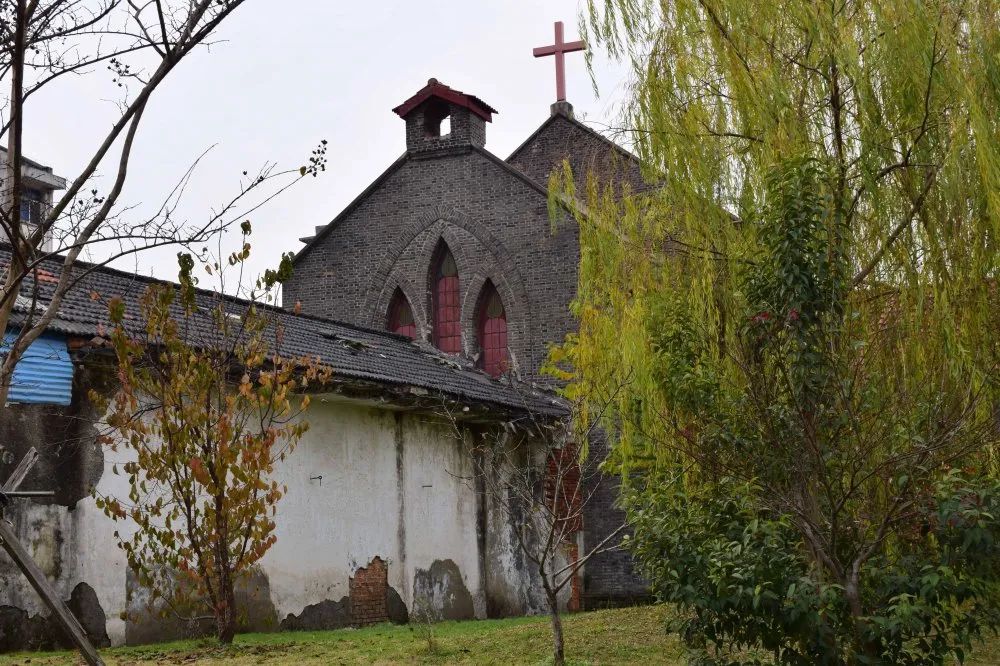
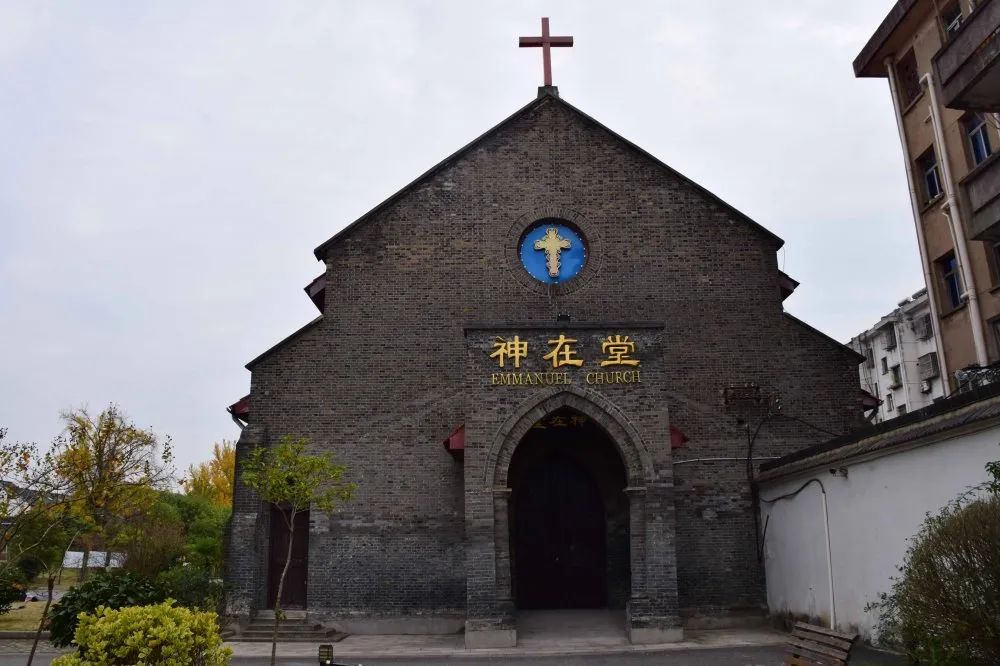
There is a pile of haystacks at the door of the church. From a closer look, it turns out to be a dog that has not taken care of itself. It's also somewhat interesting. This is also the end point of this trip to Yangzhou.
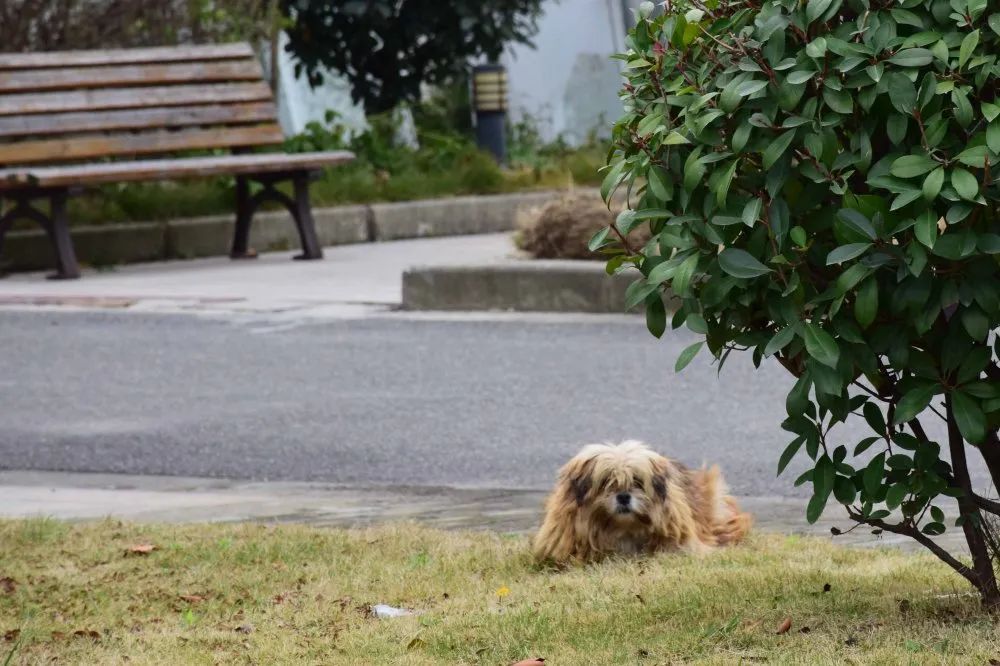
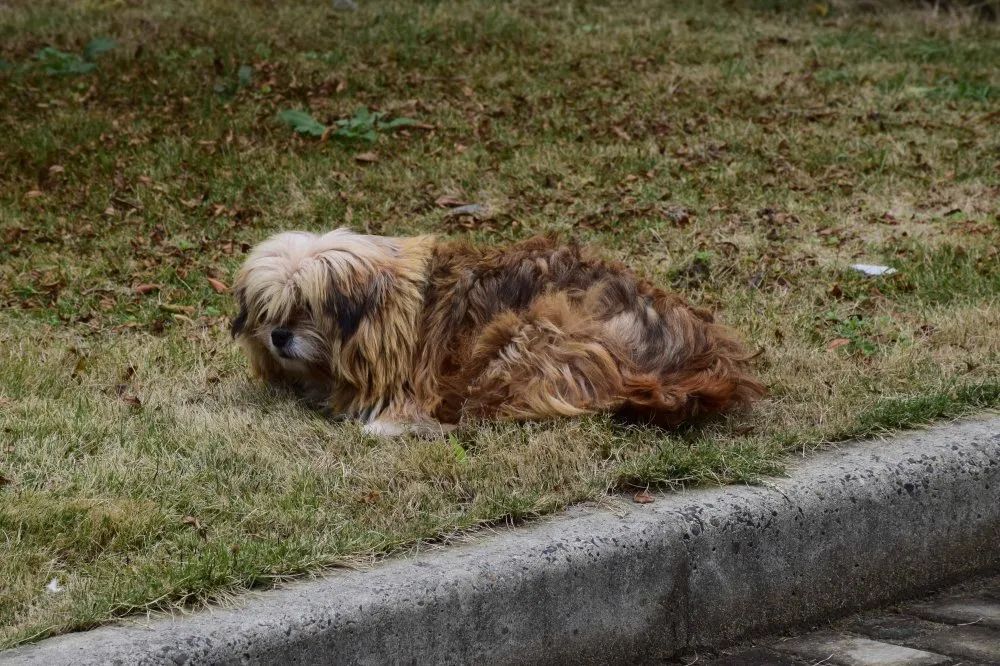


The ginkgo trees on the street have the feeling of dreaming back to Jinli West Road in Chengdu.
A happy family under the sunset by the Slender West Lake.
The remaining lotuses in the street park reminded me of what Daiyu said, "I dislike Li Yishan's poems the most. I only like his sentence 'Leave the remaining lotus to listen to the sound of rain', but you don't leave any remaining lotus."
When you come to Yangzhou, you must eat "Yangzhou fried rice". But in fact, it is nothing special compared to Yangzhou fried rice from other places.


